Retail 100 2020
Retail Week’s ranking of the industry’s top 100 most influential individuals
You only need to look at the Retail 100 to understand what it means to be a retail leader in 2020.
Against a backdrop of the coronavirus pandemic and an impending recession, the Retail 100 – produced in association with Braze, ChannelAdvisor and Salesforce – highlights leaders who have prioritised people and purpose, those who have innovated, collaborated and operated with agility to meet unprecedented challenges.
With company culture shunted front and centre during Covid-19, it has become more important than ever for leaders to look after their workforce, maintain effective communication and to be a positive force, and voice, for the industry.
We’ve placed special emphasis on leaders who have stepped up to the plate in the face of the pandemic and made tough, but necessary, decisions in response
In last year’s Retail 100, we added criteria to reflect how traditional leadership styles had evolved. This year, in recognition of the extraordinary circumstances the sector finds itself in, we’ve placed special emphasis on leaders who have stepped up to the plate in the face of the pandemic and made tough, but necessary, decisions in response.
Unsurprisingly, leaders from grocery – forced to accelerate their supply chains and adopt new business models to meet demand – dominate the top 30, with Tesco boss Dave Lewis retaining the top spot.
While still featured for their influence, the likes of Mike Ashley and Sir Philip Green have dropped in the ranking considerably – both by 15 places – demonstrating the notable missteps they’ve made in leading their teams and managing their public profiles.
Representing the developing retail eco-system, there are 23 new faces in this year’s list, including those at the helm of emerging retailers and powerful DTC brands such as Glossier founder Emily Weiss and Nike CEO John Donahoe, to key players shaping grocery and fashion, including Sainsbury’s new chief executive Simon Roberts and H&M chief executive Helena Helmersson.
We’ve also made an exception by featuring Rishi Sunak, our highest placed new entry, following a busy few months where the chancellor has introduced measures showing he’s got retailers in mind.
And positively, the Retail 100 features more female leaders than ever before in the list’s history – 23 up from 18 last year – with Boohoo co-founder Carol Kane the highest placed woman in the list.
So, who are the sector’s most influential retail leaders? And what makes them so? Browse the Retail 100 to find out.
1. Dave Lewis
Chief executive, Tesco
▶ last year: 1
Tesco boss Dave Lewis holds on to the top spot in this year’s Retail 100 after a year in which Britain’s biggest retailer completed its turnaround and played a crucial role in feeding the nation during the coronavirus pandemic.
Lewis hailed Tesco’s turnaround as complete in April, after the supermarket giant delivered a 13.5% increase in full-year operating profit to £3bn before exceptional items.
But it was Tesco’s response to the health emergency that epitomised the culture and agility Lewis has been able to re-instil at the Welwyn Garden City head office.
Tesco has more than doubled its online capacity from around 600,000 orders a week to 1.5 million, allowing it to serve existing customers and target more vulnerable consumers.
The grocer also built pop-up stores at NHS Nightingale sites and was among the first food retailers to pay its shopfloor staff a bonus for their work during the crisis.
Winner of the 2020 Retail Week Awards Outstanding Contribution to Retail, Lewis will leave the grocer in a strong financial and cultural position for his successor Ken Murphy in October.
And, following the work he has overseen on food waste and sustainability, Lewis’ influence and involvement in the retail industry is unlikely to stop there.
Jeff Bezos
Jeff Bezos
2. Jeff Bezos
Founder and chief executive, Amazon
▶︎ last year: 2
Jeff Bezos cinches second place again after a watershed year for the online retailer.
Pace of innovation may have been slower than before, but the etailer has responded to intense operational pressure as coronavirus led shoppers to switch in their droves to online retail for day-to-day purchases.
Though Amazon has met customer expectations for speedy delivery, the business has come under scrutiny because of the pandemic. It hired 175,000 new staff in response to the crisis and suspended more than 10,000 selling accounts globally for price-gouging.
Nevertheless, criticism about the safety of its warehouses during the virus outbreak abounded. Senior executive Tim Bray broke rank in May, resigning over the treatment of staff who protested about the lack of virus safety measures in warehouses and called out “a vein of toxicity running through the company culture”.
Bezos has ploughed more than $4bn (£3.2bn) into Amazon to manage the impact of coronavirus, but the real cost may be to its reputation if he doesn’t tread carefully in the coming months.
3. Rishi Sunak
Chancellor of the exchequer
NEW ENTRY
The highest placed new entry in the list, chancellor of the exchequer and Conservative MP for Richmond Rishi Sunak is one of the few MPs across the political spectrum who can be considered to have had a ‘good pandemic’.
After being thrust into the role of chancellor in a hurried cabinet reshuffle in February 2020, Sunak has since unveiled a raft of spending measures designed to prop up UK businesses in the face of the coronavirus onslaught.
Among the most pertinent to the retail industry was Sunak’s decision to suspend business rates for 12 months to alleviate pressure on bricks-and-mortar retailers forced to close stores during the lockdown.
His coronavirus interruption loan scheme for small and big companies has also proved a boon for many retailers, as has his measure to pay up to 80% of furloughed staff salaries until the end of July.
While trade bodies such as the BRC have argued that more needs to done by Sunak in the long term to fix the broken business rates system, what the chancellor has achieved in the past four months will convince many that he has retailers' interests in mind.
Rishi Sunak
Rishi Sunak
David Potts
David Potts
4. David Potts
Chief executive, Morrisons
▲ last year: 10
David Potts surges into this year’s top five after leading what was arguably UK retail’s most significant and wide-ranging response to the coronavirus crisis – one that put customers, staff and suppliers at the heart.
The Bradford-based grocer was the first to launch 'easy to order' food parcels containing essential grocery items, producing 100,000 of them every week. It handed its shopfloor workers a three-fold increase in bonuses, meaning the average full-time employee would take home a £1,050 reward. And it led the grocery pack with its decision to pay small suppliers within two days rather than two weeks – a shift that was quickly followed by others such as Tesco and Sainsbury’s.
After a stellar turnaround, Potts and Morrisons have come under pressure in the past 18 months as sales in its core supermarket estate began to plateau.
But Potts has increased focus on capital-light growth through partnerships with Amazon and petrol forecourt operators and the expansion of wholesale.
Such initiatives have helped Morrisons increase pre-tax profits 3% to £408m in the year to February 2 – no mean feat in a challenging market – and growth has been maintained. In the 14-week period to May 10, the supermarket reported like-for-like sales excluding fuel up 6%, retail sales up 5% and wholesale 0.6%.
5. Lord Simon Wolfson
Chief executive, Next
▶︎ last year: 5
Lord Wolfson has developed a reputation as a retail oracle – his pronouncements and views typically seized upon by the industry as among the most perceptive.
He has provided some of the most thoughtful analysis of the retail landscape before and during the coronavirus pandemic – although he too was caught out by the ways in which the crisis developed.
Early on, Wolfson provided a detailed reading of the situation from a business perspective. The stress tests he elaborated were models as useful for others as they were to Next, but gloomy as they looked at the time, they proved too optimistic.
While Next is an online leader, it was among the first to shut its website because of concern about warehouse staff safety. However, online operations reopened within weeks, the retailer having made necessary changes to working practices.
Wolfson and Next continue to set standards for insights and executional excellence. As Wolfson said in April: “Our job is not to guess exactly how things will pan out but to prepare the company for all outcomes that seem reasonably possible.”
And, as they too consider future possibilities, retailers will continue to listen closely to Wolfson.

Lord Simon Wolfson
Lord Simon Wolfson

Steve Murrells
Steve Murrells
6. Steve Murrells
Chief executive, The Co-operative Group
▲ last year: 18
While the successes of Co-op's food business are well documented, Steve Murrells has played a critical role in steering the group and been a spokesperson for the wider industry this past year, which propels him from 18 to sixth place.
The group’s most recent annual results showed underlying pre-tax profit jumped 50% to £50m and total revenues were up 7% to £10.9bn.
Murrells’ decision to shift the food supply base to more UK producers has also paid off, putting it in a better position to withstand the wave of customer stockpiling in the early weeks of the lockdown that nearly crippled many other grocers.
Murrells has also kick-started a Members’ Coronavirus Fund – a scheme that enables members to spend unused rewards on food banks, supports frontline community causes and includes a funeral hardship fund.
Murrells has also stuck his head above the parapet to lobby for changes that would benefit retail. He has recently been a leading proponent within the industry for radical business rates reforms and for revitalising struggling UK communities.
7. Simon Roberts
Chief executive, Sainsbury's
NEW ENTRY
Sainsbury’s new boss Simon Roberts rockets into the Retail 100 top 10 just weeks after succeeding Mike Coupe as chief executive.
Roberts has already made his mark at the grocer, having spent three years as retail and operations director, and during which he won plaudits for his people-first approach. Also in that role, former Boots boss Roberts oversaw sweeping changes to Sainsbury’s store operating model and has been at the forefront of its bricks-and-mortar response to the coronavirus pandemic.
Sainsbury’s was among the first supermarket chains to introduce regular shopping hours for NHS staff, elderly and vulnerable people, and Roberts pressed ahead with moves to redeploy Argos staff into Sainsbury’s stores to cope with the spike in demand. Sainsbury's also leveraged its store portfolio to increase online collection points across the UK, including car-park collections, in its bid to help “feed the nation”.
Roberts might have a tough act to follow in the Sainsbury’s hot seat, but his pedigree and groundswell of internal support within the business will provide him a firm foundation.
Simon Roberts
Simon Roberts
Peter Cowgill
Peter Cowgill
8. Peter Cowgill
Executive chair, JD Sports
▼ last year: 7
It has been a year of two halves for Peter Cowgill.
His business performance has been outstanding, with sales up 47% at the half-year mark to £2.7bn and pre-tax profit up 7% to £130m. The retailer’s international expansion has also continued at pace with expansion across the US, Asia and Australia.
However, growth ambitions have been punctured somewhat by the Competition and Markets Authority, which blocked JD’s acquisition of struggling sports fashion retailer Footasylum in May following a lengthy deliberation. Cowgill slammed the decision as “reckless” and said an appeal was being considered.
As JD Sports closed stores during the coronavirus outbreak, Cowgill has taken a voluntary 75% pay cut to reduce business costs.
Despite the CMA’s verdict, Cowgill’s business looks likely to be one of the more resilient to the vagaries of consumer confidence throughout the pandemic and beyond.
And Cowgill appears undeterred. In May, it was revealed that he was among the prospective bidders, alongside Mike Ashley, for footwear chain Office.
9. Mahmud Kamani and Carol Kane
Founders, Boohoo
▲ last year: 27
Rising from 27th place to feature among the Retail 100 top 10, Mahmud Kamani and Carol Kane have overseen a vintage year at Boohoo, supported by new chief executive John Lyttle (who ranks at 43).
Boohoo reported a 54% jump in pre-tax profit to £92m in its last financial year and a 44% revenue increase to £1.2bn.
Under Kamani and Kane, Boohoo has made bold moves to broaden its appeal with the acquisition of the online businesses of Karen Millen and Coast in September 2019.
Such deals support their ambition for the group to lead the fashion ecommerce market, fuelling international expansion and brand awareness, and significantly increasing scale in the process.
Despite challenging times for the fashion market amid the coronavirus pandemic, conditions have demonstrated the inherent strengths of Boohoo’s businesses, particularly across its supply chain which, despite holding some 80,000 styles, has provided the flexibility to move production around and make orders at a moment’s notice.
After an initial drop in sales as the UK entered lockdown, Boohoo reported that performance subsequently bounced back and there was “improved year-on-year growth of group sales during April”.
With the coronavirus playing to Boohoo’s advantage, Kamani and Kane will no doubt oversee another stellar year for the business.
We can also expect Kamani to play a role in helping to control the virus itself as he prepares to launch an at-home Covid-19 testing kit through his separate business venture Medusa19.
Mahmud Kamani and Carol Kane
Mahmud Kamani and Carol Kane
Nick Beighton. Photo credit: Peter Searle
Nick Beighton. Photo credit: Peter Searle
10. Nick Beighton
Chief executive, Asos
▼ last year: 9
After a record-breaking first half for Asos, chief executive Nick Beighton was forced to put celebrations on hold as a result of the pandemic.
Asos had posted a “record” uplift in interim pre-tax profit to £30m from £4m the previous year. Group revenues had jumped 21% during the first half to £1.6bn, up 20% in the UK to £577m. Total order numbers rose 19% year on year to 41 million.
Following the outbreak, the fashion retailer reported in March that sales had since plummeted between 20% and 25%. One month later, Beighton revealed the business was launching a £200m equity share to protect its business from disrupted trading.
Yet there have been positive signs. In April, Beighton revealed that the pandemic had prompted interest from a raft of fashion brands on its “target list” to sell through its marketplace. Asos’ outlet team had also been working with high street partners to help find solutions to clear excess stock.
With its agility, international strength and social media prowess, Asos continues to set the benchmark that other businesses look to for inspiration so, while its short-term outlook may be uncertain, under Beighton Asos looks set to emerge as a stronger business post Covid-19.
11. Paul Marchant
Chief executive, Primark
▼ last year: 4
For Primark chief executive Paul Marchant, this has been his toughest year.
Little more than 12 months ago, as Primark opened a Birmingham flagship, Marchant was proving once again that great value, great product and a great store environment could draw shoppers in droves. Primark does not trade online so its success was testament to the enduring appeal of consummate bricks-and-mortar retail.
A year on, however, and Primark’s reliance on stores made it one of the most high-profile casualties of lockdown – sales disappeared at the rate of £650m a week.
The retailer was protected by the financial strength of owner ABF, but nevertheless had to negotiate with landlords over rent.
After some initial criticism of its treatment of suppliers during the outbreak, Primark acted generously towards the overseas manufacturers that make its clothing and, in the end, set a good example.
With its stores reopening from June 15, Primark has promised to “come back with a bang”. That’s a pledge rivals can’t afford to take lightly. Whether it also decides finally to introduce an online proposition will be closely watched by the whole of fashion retail.
12. Archie Norman
Chair, Marks & Spencer
▼ last year: 11
When Marks & Spencer chair Archie Norman famously described the retailer as a burning platform back in 2018, he had no idea that all of retail would be engulfed in a bigger conflagration – the coronavirus pandemic.
Lockdown has meant M&S’ core fashion business has been effectively closed. Along with its peers, M&S had to secure liquidity to tide it over in the short term and work out how to rebuild business in the medium and longer terms.
This is a colossal challenge to add to those Norman and the M&S leadership were also attempting to navigate as part of the turnaround programme.
Norman has clearly encountered some inertia at M&S, and urging a culture shift he said the efforts of coalface staff were not always mirrored among elements of management.
He can look forward to one big achievement though – the launch of a joint venture with online grocer and tech platform Ocado, finally enabling M&S to sell its food online.
The partnership will go live in September and the hope is it will be transformational.
13. Doug Gurr
UK country manager, Amazon
► last year: 13
Doug Gurr has had a busy 12 months.
Industry speculation that Amazon would open its first Go store in the UK seemed to be proved right earlier this year, when plans to open a checkout-free shop in west London emerged.
The online titan’s stake in takeaway firm Deliveroo also secured hard won approval after undergoing intense scrutiny by the Competition and Markets Authority, and the business is gearing up to launch a UK grocery delivery service called Ultra Fast Fresh later this year.
However, these developments pale into insignificance in the face of Amazon’s response to the coronavirus crisis in the UK.
The ability to maintain ranges and delivery timeframes have impressed shoppers but arguably this has come at a price, with the safety of warehouse staff amid the outbreak in question.
In the coming months, Gurr’s role in managing Amazon’s UK reputation while fulfilling customer expectations may become more of a challenge.
14. Steve Rowe
Chief executive, Marks & Spencer
► last year: 14
Marks & Spencer chief executive Steve Rowe, along with chairman Archie Norman (ranked 12), was already engaged upon a programme to turn around the bellwether retailer when coronavirus struck.
The scale of disruption was evident when the pandemic prompted a further strategic rethink at M&S, with its ‘never the same again’ programme unveiled alongside full-year results in May. For the 52 weeks ending March 28, M&S reported that pre-tax profit fell by 21% down to £403m, while group revenues slipped 2% to £10bn.
Rowe seems determined to turn crisis into opportunity. Covid-19 has galvanised the retailer’s efforts to be relevant, evident in everything from its support for suppliers to staff pay during the outbreak and initiatives to support the NHS.
The sense of urgency may help M&S power-charge its wider transformation. Although some progress has been made, there is a long way still to go – particularly at the long-underperforming clothing division. Its revival is seen by many observers as vital in restoring M&S' fortunes.
Rowe famously described the turnaround as a marathon challenge, prompting wags to continually ask whether he "can see the Cutty Sark yet".
Coronavirus has not helped, but the launch of M&S food online with Ocado later this year will be a significant milestone.
15. Giles Hurley
UK and Ireland chief executive, Aldi
▶︎ last year: 15
Media-shy Aldi boss Giles Hurley has quietly gone about his job of growing the discounter’s UK market share.
Aldi achieved UK sales growth of 9% in April as shoppers continued to stockpile during the cornavirus outbreak, while a raft of new initiatives gave the supermarket extra appeal.
In a bid to better serve vulnerable and elderly customers, Aldi launched its first foray into online grocery delivery – offering ambient food parcels to such customers available from its website.
While Aldi had previously sold wine and some general merchandise lines online, its ability to scale up to offer more food deliveries during the virus is testament to the agility built into the organisation by Hurley. Since lockdown, Aldi has recruited an extra 9,000 staff.
Prior to the outbreak, Aldi had been pushing ahead with its store expansion programme, targeting 1,200 UK stores by the end of 2025. At the end of last year, it had significantly ramped up the rollout of its convenience format Aldi Local.
With a 2020 Retail Week Awards win for Best Grocer under his belt, Hurley will continue to steer Aldi in its disruption of the established UK grocers this year.
16. Tim Steiner
Chief executive, Ocado Group
▼ last year: 6
Ocado’s co-founder and chief executive Tim Steiner has certainly had a year to remember, both highs and lows.
In many ways, 2019 saw Ocado complete what Steiner has often called its “20-year overnight success”, securing a £750m joint venture with Marks & Spencer and embarking on ambitious international deals with Coles in Australia and Aeon in Japan.
However, for all its successes, Ocado’s full-year results showed losses before tax spiralled to more than £215m, while EBITDA also slumped 27% to £43m, affected by factors including accounting changes, share scheme costs and the fire at its Andover depot last year.
Despite its profitability issues, Ocado remains a darling of the City and is one of the few innovative UK businesses that could be considered a global leader in its field.
Steiner’s relentless entrepreneurial ethic and boundless vision for the business saw him honoured as the Retail Leader of the Year at the 2020 Retail Week Awards.
During the coronavirus pandemic, Ocado ramped up capacity by about 40% domestically to meet the surge in demand for its home grocery delivery service and served more than 150,000 vulnerable customers from March to May.
With its first international customer fulfilment centres going live earlier this year, 2020 looks to be another year of growth for Ocado under Steiner’s tenure.
17. Dame Sharon White
Chair, John Lewis Partnership
NEW ENTRY
Dame Sharon White has had a baptism of fire since becoming chair of the John Lewis Partnership in February.
Her predecessor, Sir Charlie Mayfield, was widely seen as having delivered a hospital pass on his way out, after unveiling radical restructuring at the department store and Waitrose grocery group that resulted in the departures of some of its most experienced leaders.
White has played a deft hand, focusing primarily on listening to partners and getting under the bonnet of the retailer but making clear that change is to come.
Such change might include abandoning key elements of the Mayfield plan, such as giving each business more autonomy than envisaged by her predecessor who was determined to wring out synergies from the pair under a unified structure.
On top of needing to sort out what many in retail believe to be a bit of a mess, White joined just as the pandemic was about to bring Britain to a near stop and must address its impact.
White, who formerly ran regulator Ofcom, has accelerated a strategic review at the partnership. The findings will be revealed later this year, no doubt influenced by former McKinsey partner Nina Bhatia, who also joined the retailer in February as strategy and commercial development director, and who is mentioned in this year's 'ones to watch' section.
18. Mike Ashley
Chief executive, Frasers Group
▼ last year: 3
It has not been a vintage year for notorious retail entrepreneur Mike Ashley, who has fallen 15 places in the ranking.
Ashley is known for his outspoken nature, but several missteps have invoked ire from many quarters. These have included Sports Direct’s recent plea to keep stores open during the pandemic despite being classified as a non-essential retailer by the government and accusations by some store managers that they were being made to work despite being furloughed.
Ashley apologised for the former but, nevertheless, such moves put him out of step with the public mood.
Ashley has faced scrambling to find a new auditor and a Belgian tax bombshell during the year and, while both issues have been rectified, they are perhaps indicators of a less than slick operation.
The group posted a 22% rise in underlying EBITDA to £181m at the half-year mark in December and is still pursuing its elevation strategy. However, it has flagged that progress on that front is slower than anticipated because of an unenthusiastic response from some big-name brands.
Ashley’s bombastic style is legendary, but he will need business sense and an understanding of public sentiment if he is to regain ground.
19. Alex Baldock
Chief executive, Dixons Carphone
▼ last year: 16
After two years at the helm of Dixons Carphone, Alex Baldock’s strategy overhaul is beginning to take shape, but it still has a way to go.
Group sales were down 0.9% to £10.4bn and pre-tax profits down 22% from £382m to £298m last year, on the back of challenging conditions in the UK across electricals and mobile, particularly the latter.
In March 2020, the business announced the closure of all Carphone Warehouse stores in a bid to streamline its store estate and focus on a three-in-one concept.
Speaking of the decision, Baldock admitted the changes made for “a painful and difficult day for the business”, particularly amid the coronavirus situation, but insisted that the strategic shift was “an essential one to set us up for long-term success”.
Baldock has also continued to merge online and offline worlds in response to changing customer behaviours in lockdown. With stores reopening from June 15, it will feature a zero-contact model including a drive-thru concept and ShopLive, a video shopping service.
While Dixons Carphone has managed to recover two thirds of its lost store sales online, Baldock needs a solid post-pandemic strategy to keep the business on track.
20. Richard Walker
Managing director, Iceland
▲ last year: 23
While the past year hasn’t been without challenges for Iceland, it has marked the period in which Richard Walker – son of Iceland founder Malcolm – stepped out from his father’s shadow and became the face of the frozen food specialist.
His articulate views on Brexit on BBC’s Question Time in March 2020 won national press coverage and Walker has used his platform to bring attention to Iceland’s goals around the use of palm oil and its sustainability efforts – in July 2019, Iceland became the first grocer to ban the use of plastic bags outright.
During the pandemic, Walker has continued to be a voice for the industry and praised retail staff for their efforts, commenting that “coronavirus has brought out the best in retail”. Iceland was the first retailer to implement dedicated store hours to help elderly and vulnerable shoppers, a practice that has since been replicated by all the grocers.
Last year Iceland also expanded its store estate under Walker’s direction, with a focus on its Food Warehouse fascia. It opened its 100th store in Blackpool and continues to be one of the UK’s fastest growing retailers by number of new store openings.
Paul Marchant. Photo credit: Anthony Woods
Paul Marchant. Photo credit: Anthony Woods
Archie Norman
Archie Norman

Doug Gurr
Doug Gurr
Steve Rowe
Steve Rowe
Giles Hurley
Giles Hurley
Tim Steiner. Photo credit: Peter Searle
Tim Steiner

Dame Sharon White
Dame Sharon White

Mike Ashley
Mike Ashley
Alex Baldock
Alex Baldock
Richard Walker
Richard Walker
Christian Hartnagel
Christian Hartnagel
Seb James
Seb James
Luke Jensen
Luke Jensen

Jason Tarry
Jason Tarry
Charles Wilson
Charles Wilson
Roger Burnley
Roger Burnley


Helena Helmersson
Helena Helmersson
Thierry Garnier
Thierry Garnier
John Donahoe
John Donahoe
21. Christian Hartnagel
UK chief executive, Lidl
▼ last year: 20
Under Christian Hartnagel’s leadership Lidl has enjoyed another stellar year of growth.
In February, the German discounter pledged more than £1bn investment in new stores as it looks to reach a target of 1,000 UK stores by 2023. That same month, it opened its 800th UK store – its 50th of the past year.
Because of continued expansion, Lidl has increased its overall grocery market share and sales soared over the all important Christmas period – up 11% year on year.
Under Hartnagel’s watch, Lidl has also sought to bolster its UK supply chain, committing £15bn of investment over the next five years for British growers and suppliers.
Since the onset of the coronavirus crisis Lidl has played its part in the wider grocery sector’s combined efforts to feed the nation, with plans to hire 2,500 new staff.
Looking to the year ahead, Hartnagel’s role in disrupting the one-time hegemony of the big four supermarkets shows few signs of abating. Post-lockdown, consumer caution may make Lidl’s low-cost groceries even more appetising to shoppers.
22. Seb James
Senior vice-president, president and managing director, Boots
▲ last year: 26
As Boots' ebullient UK boss, Seb James has helmed the health and beauty chain through a challenging year.
UK sales and profits declined amid speculation that owner Stefano Pessina is seeking to take the chain and its US stablemate Walgreens private.
The retailer took the decision to shutter 200 stores last year to cut costs and suffered a cybersecurity attack on its loyalty card programme earlier this year, which resulted in 150,000 accounts being hacked.
But James has delivered some bright spots, unveiling further store overhauls and introducing new brands and product categories, including wellness and sex toy products.
Its health proposition meant Boots continued to operate during the pandemic and the business won praise for its coronavirus response, which included offering testing kits for NHS workers.
James’ plans to spruce up the store estate have been put on ice as the retailer cuts costs during the outbreak. However, he has the opportunity to build upon Boots’ vital place as a UK health specialist over the coming months.
23. Luke Jensen
Chief executive, Ocado Solutions
▲ last year: 24
The past year has been busy for Ocado Solutions boss Luke Jensen as he delivered on several new international partnerships.
Under Jensen’s stewardship, Ocado Solutions bookended 2019 by striking new deals with Australian grocery giant Coles in March and then with Japanese supermarket chain Aeon in late November.
The business now has agreements with grocery clients worldwide, including Kroger in the US.
Jensen has been at the forefront of bringing to completion the first of the technology business’ international customer fulfilment centres (CFC).
In March 2020, Ocado’s first international CFC went live for French supermarket giant Casino at Fleury-Mérogis, near Paris. That was followed in April by the opening of its first North American automated warehouse with Sobeys in Canada.
The coronavirus pandemic has opened new doors for Jensen and Ocado Solutions. In May, the retailer said that Ocado Solutions had drawn increased interest from potential overseas customers and it hinted that existing customers might also seek to increase CFC orders in the near future.
24. Jason Tarry
UK and Ireland chief executive, Tesco
▲ last year: 33
Tesco’s core UK and Ireland division continues to go from strength to strength under the leadership of 30-year veteran Jason Tarry.
Last year the grocer’s British business delivered a 17% jump in operating profit to £2.2bn on flat sales of £45bn. Bottom line improvements were delivered because of margin gains that, at 4%, are now the envy of many of Tesco’s mainstream competitors.
Tarry has overseen those efforts and delivered strong improvements in Tesco’s net promoter score and value perception among shoppers – further enhanced in March with the launch of its Aldi price-matching scheme.
Tesco has won plaudits for the part it has played during the coronavirus crisis. Tarry drove much of the strategic change implemented.
Fresh food counters were closed so that staff could be redeployed on to the shopfloor, payment terms for small suppliers were shifted from 14 days to five and it set the bar with social distancing measures in stores.
As a sense of normality begins to appear on the horizon, Tesco and Tarry are well placed to deliver another fruitful year.
25. Charles Wilson
Chief executive, Booker
▶︎ last year: 25
He may not have taken centre stage in front of the media and analysts during the coronavirus pandemic, but the man known across the industry as “Two Brains” will have been pulling strings behind the scenes as Tesco responded to the crisis.
Wilson, who leads the grocer’s Booker wholesale division, has spearheaded an impressive period of growth.
Last year Booker delivered a 5% uplift in sales to £6bn and it has since completed the acquisition of Best Food Logistics to further its presence in the growing wholesale market.
Even at a time when Booker has come under pressure – sales to its bar and restaurant customers plummeted 60% since lockdown measures came into force – Wilson and his team have played a crucial role in feeding the nation.
Sales to convenience store partners have jumped 30% during the pandemic as smaller, local shops grapple to maintain availability.
Wilson has provided a valuable sounding board for Tesco chief executive Dave Lewis throughout his six-year tenure and will continue to offer vital expertise when Ken Murphy takes the helm in October – a role that emphasises his huge importance to Britain’s biggest retailer.
26. Roger Burnley
Chief executive, Asda
▲ last year: 31
Roger Burnley climbs the Retail 100 after overseeing a solid year and the ongoing response to the coronavirus crisis at Asda.
Owner Walmart has paused efforts to sell a majority stake in the supermarket giant during the health emergency, giving Burnley the headspace to push forward with his strategy.
The grocer has closed the gap with the discounters on price after investing about £80m over the past 12 months and continued to improve its own-brand ranges. Although sales started to come under pressure towards the end of 2019, Burnley has laid strong foundations from which Asda can build.
During lockdown, Asda was one of the first to launch ‘volunteer shopping cards’, which could be topped up by elderly, vulnerable or self-isolating customers for a volunteer to do their shopping.
The grocer has donated £5m to food banks and community charities, and in May it launched an electric vehicle fleet to help ramp up its online delivery capacity.
Asda may possibly be under new ownership in a year’s time, but in Burnley the business has a safe pair of hands on the tiller.
27. Simon Arora
Owner and chief executive, B&M
▼ last year: 22
With Simon Arora at the helm since 2004, B&M is generally recognised as one of the value sector’s more resilient operators, but Arora has faced some obstacles over the past year.
The general merchandise powerhouse posted a rare decline in sales at the beginning of the year after a difficult November trading period and pre-tax profits slumped at the half-year mark as its German division Jawoll dragged down the group’s overall performance. In contrast, UK sales were up 14%.
Arora has taken swift strategic action. In March he confirmed the sale of Jawoll for £11m, hired a new chief financial officer – former Wilko CFO Alex Russo – and he is now focused on the recent acquisition of French value chain Babou to deliver international growth.
Arora has also faced a smoother period than most retailers during the pandemic, with B&M stores deemed essential and allowed to remain open during the crisis.
While Arora’s international ambitions have had to be readjusted, he has presided over a period of spectacular transformation at B&M and he’ll be using his track record to return the group business to strong financial health.
28. Helena Helmersson
Chief executive, H&M
NEW ENTRY
Helena Helmersson debuts in the Retail 100 after becoming the first woman to lead H&M.
Made chief executive in January following Karl-Johan Persson’s move to the chair’s role, Swedish-born Helmersson had spent more than 20 years working her way up at H&M. She held senior roles overseeing operations and sustainability, and her promotion confirmed her status as one of the most powerful women in retail.
Helmersson told Retail Week that she was “fortunate to lead several of our important group functions and have been part of the plans around supply chain and logistics and production, but also in the digital space with IT and AI and I have also worked on the expansion".
At the time of her promotion, H&M set out a plan to integrate the physical and digital offers, invest in technology and secure the best product assortment – all areas which Helmersson will lead.
With a presence across 72 markets, H&M was hit hard by the pandemic and more than 4,900 of its stores were shuttered. However, Helmersson is confident she can overcome its impact.
She says she believes the crisis will accelerate the pace of digitalisation in general in the fashion industry, which will work in H&M’s favour.
29. Thierry Garnier
Group chief executive, Kingfisher
NEW ENTRY
A veteran of French retail giant Carrefour, Thierry Garnier succeeded Véronique Laury at Kingfisher in September last year – and hopes rest on him to get the business into better shape.
Garnier faces various challenges at the DIY giant. In the three months to April 30, total sales fell 24% to £2.2bn, while in the UK and Ireland sales fell 15% to £1.1bn.
Kingfisher was hit hard by the enforced closure of its stores during the start of lockdown, but the shift to online plays to Garnier’s expertise.
During his time at Carrefour China, he launched the retailer’s online business in 2014, increased digital sales penetration from 0.6% in 2016 to 7% in 2019, and launched an app that was downloaded 60 million times within six months.
While it was previously thought Garnier would modify Laury’s One Kingfisher strategy, recent financial performance has led to a rethink. Garnier is now being given the “opportunity to review everything that’s going on with the business”.
Whether this will see him rip up the One plan in its fourth year remains to be seen, and all eyes will be on Garnier as he makes his battle plan.
30. John Donahoe
Chief executive, Nike
NEW ENTRY
PayPal chair and former eBay chief executive John Donahoe replaced long-term Nike boss Mark Parker as chief executive in January this year, when Parker became executive chair.
Donahoe’s appointment is part of the brand’s plan to pivot its business towards digital.
Parker said that Donahoe’s “expertise in digital commerce, technology, global strategy and leadership combined with his strong relationship with the brand, made him ideally suited to accelerate our digital transformation and build on the positive impact of our 'Consumer Direct Offense'.”
The ‘Offense’ referred to is Nike’s move into selling more direct to consumer, having recently cut ties with Amazon on its third-party programme, while scaling back its wholesale business by as much as 50% over the next five years.
Five months on from his appointment, Donahoe has already made bold moves, including a leadership reshuffle with a new chief operating officer and chief financial officer, alongside the decisive move to shut all stores across the US and Western Europe during the pandemic before lockdown measures were implemented.
With form in powering a retailer’s business model forward – he was the driving force behind eBay’s push to mobile-compatible tech and expansion of its ecommerce offering – Donahoe appears primed to take Nike on its next iteration, which is likely to further change the traditional retail landscape.
31. Peter Jelkeby
Country manager UK and Ireland, Ikea
NEW ENTRY
Peter Jelkeby was appointed to head Ikea’s UK and Ireland arm in May 2019, following Javier Quinones' move to lead the US division.
Jelkeby has spent more than 20 years with Ikea, working for the retailer in Sweden, Russia and Vietnam, as well as the UK and Ireland.
On his appointment, Jelkeby said he was ready to “respond to the changing needs of our customers to secure an Ikea that is affordable, reaches more people, delivers excellent customer experience and is truly people and planet positive”.
With UK sales up at £2.1bn for 2018/19 driven by its stores and online propositions (accounting for 19% of sales), Jelkeby has been tasked with developing the retailer’s multichannel capabilities and improving in-store experiences.
While the pandemic shuttered its store estate, the crisis has helped the retailer accelerate transformation plans. In April, Ikea acquired AR start-up Geomagical Labs in a bid to drive shoppers to purchase more big-ticket items without visiting a store.
Promoted from 'one to watch' in the Retail 100 2019, the coming year will see Jelkeby put his years of experience into play.
32. Theo Paphitis
Chief executive, Theo Paphitis Retail Group
▶︎ last year: 32
It has been a mixed bag for Theo Paphitis and his trio of brands – Ryman, Robert Dyas, and Boux Avenue – over the past year.
During the six weeks to December 24, the group’s like-for-likes slipped 1.3%. There was a positive performance at Robert Dyas, Ryman was flat and Boux Avenue was down.
In February, Paphitis appointed advisers from Deloitte to discuss a potential restructuring process for Boux Avenue that would result in store closures. This followed a trading update in January when Paphitis said Boux Avenue was paying “above-average” rents while other retailers had been able to “completely realign their rental cost base, often through CVAs”.
At the time, Paphitis said he was focused on addressing Boux Avenue’s “cost base, in particular our rents, as well as addressing the appropriate mix of channels to match the changing needs of our customers”.
The pandemic shuttering Boux’s store estate will have brought these areas into even greater focus for Paphitis, but there may be a silver lining – while its latest results are yet to be published, general UK lingerie sales were reported to be up 66% during lockdown.
33. Jo Whitfield
Chief executive, Co-op Food
▲ last year: 37
The Co-op’s food business continues to be the pillar on which the wider business can rely for growth.
In April, the Co-op enjoyed the biggest overall growth of all the grocers in terms of sales – up 20% – while its market share growth topped out at 7%.
Before the coronavirus crisis struck, Whitfield’s convenience store empire had been growing steadily and she had led the retailer into burgeoning food trends, including launching the Co-op’s own-brand Gro vegan range in January.
During the pandemic, the Co-op has been focused on increasing its online delivery capacity, spearheading tie-ups with delivery app Deliveroo, as well as experimenting with its own Co-op.com delivery services.
To meet demand, the Co-op has bought on around 5,000 new employees and has focused its recruitment on people whose previous jobs in the food and beverage and hospitality sectors were decimated by the outbreak.
Showing community retail at its best, the Co-op ploughed £600,000 into local food banks across the UK and has donated £1.5m worth of food to charity FareShare.
Awarded the prestigious Veuve Clicquot Business Woman Award in 2019 in recognition of her contribution, Whitfield has led the grocer skilfully.
34. John Roberts
Founder and chief executive, AO.com
▶︎ last year: 34
Returning to lead AO.com in February 2019 after a two-year hiatus, John Roberts is keenly focused on developing the retailer’s product ecosystem and fleshing out its offering.
Group sales growth remained solid over 2018/19 with an increase of 13% to £903m, but AO’s profit struggles have deepened recently. Group pre-tax losses for 2018/19 increased to £19m, impacted by driver legislation changes in Germany and lower product margins in Europe.
However, Roberts has played his part in improving AO’s UK arm with pre-tax profits up £400,000 to £14m in 2018/19 and Roberts is overseeing new launches to improve performance.
In the past year, the AO boss has piloted a white goods rental scheme and launched a mobile division – AO-mobile.com – throwing down the gauntlet to the likes of Dixons Carphone.
Roberts has also been giving back to local communities and his commitment as chair of Onside Youth Zones – safe, affordable and inspiring places for young people – saw him crowned Retail Activist at the 2020 Retail Week Awards.
While he’s asserted that his comeback “is not the John Roberts roadshow”, his leadership is certainly helping to breathe new life into AO.
In May, Roberts commented: “In terms of online shopping behaviour, I believe we have seen five years accelerate into only five weeks and we will plan to cement that change” – and even if this statement is somewhat exaggerated, Roberts’ business stands to be a big beneficiary from the crisis.
35. John Allan
Chair, Tesco
▶︎ last year: 35
Tesco chair John Allan this year shouldered responsibility for the biggest decision at Britain’s biggest retailer – who should succeed Dave Lewis as chief executive.
The surprise departure of Lewis, who was lauded for restoring Tesco’s fortunes in the wake of a profit warning of titanic dimensions and an accounting scandal, was unwelcome news to Tesco investors. And it was ultimately Allan’s role to ensure a smooth succession, in contrast to the wrong choice made by his predecessor, which was a big contributor to the crisis at Tesco.
Allan gave his approval to the appointment of former Walgreens Boots Alliance director Ken Murphy, who will start later this year.
As well as overseeing Tesco’s governance and changing of the guard, Allan has been busy in his role as president of business body the CBI. He has frequently appeared in the media to discuss wider business concerns such as Brexit.
36. Trevor Strain
Chief operating officer, Morrisons
NEW ENTRY
A new entry, Trevor Strain has surged into the Retail 100 following a year in which his influence at Morrisons has grown.
A former Tesco director, he was promoted from his previous Morrisons role as chief finance officer to chief operating officer last December, with an extensive remit that includes commercial, manufacturing, supply chain, logistics, operations development, online and wholesale.
Strain has played a central role in Morrisons’ turnaround and has led in building £1bn wholesale business from scratch, by making better use of the grocer's unique vertically integrated model.
Strain has also been at the heart of the supermarket chain’s impressive coronavirus response. The Bradford-based grocer was the first to introduce food parcels and rolled out a click-and-collect food box service from hospital car parks to give NHS staff easy access to essential groceries at the height of the pandemic.
In another first, Morrisons launched a telesales grocery shopping service for elderly and vulnerable customers who may have struggled to shop online in the traditional way.
The heir apparent to Morrisons boss David Potts, it might not be too long before Strain bags himself another promotion.
37. Carlos Crespo
Chief executive, Inditex
NEW ENTRY
Carlos Crespo makes his Retail 100 debut after being promoted from chief operations officer to chief executive last May by executive chairman Pablo Isla.
Crespo originally joined Inditex – owner of Zara, Pull & Bear, Bershka and Stradivarius – in 2001 in auditing. His background and knowledge will help uphold the business’ standing as the world’s largest fashion company with 7,420 stores in 96 countries.
While Isla has handed responsibility of Inditex’s technology, data, logistics and sustainability over to Crespo, the pair are now jointly responsible for defining the company’s global strategy.
Already the new strongman has overseen a solid performance. In March 2020, the retailer generated an 8% rise in net sales to $28bn (£22bn) and like-for-likes climbed 6.5%. Inditex said it had decided to recognise an inventory provision of €287m (£256m) in the wake of coronavirus. That meant that net profit was up 6% to €3.6bn (£3.2bn). Without the provision, profits would have climbed 12% to €3.8bn (£3.4bn).
Crespo was also set to be putting the wheels in motion for Inditex’s digital store strategy, but these plans have been paused after the pandemic shuttered the group’s estates.
As shops gradually reopen, Inditex’s global footprint should help it cope better than some and Crespo’s years of experience will make him an asset in getting operations back to normal capacity.
38. Roger Whiteside OBE
Chief executive, Greggs
▲ last year: 64
Up 26 places on 2019, Roger Whiteside has achieved another highly successful year at the helm of Greggs and, perhaps buoyed by the triumph of the baker’s vegan products, he has embarked on a meat-free diet.
Greggs reported a strong rise in full-year profits, with a 27% jump in pre-tax profit excluding exceptional items to £114m in the 52 weeks to December 28, 2019, as sales rose 14% to £1.2bn. The food-on-the-go specialist also launched 97 new stores during 2019, bringing its total to 2,050.
Greggs’ six-year transformation is now almost complete, and Whiteside – who has proven his ability to see where consumer trends are going and to move with the times – is now looking to push through his 'Next Generation Greggs' strategy. This includes partnerships, drive-thrus, seats in-store, click and collect and customisable food.
Whiteside had begun to action this by rolling out Greggs’ delivery partnership with Just Eat, but orders had to be halted owing to coronavirus and, in April, the brand was forced to access £150m in new finances through the government’s corporate financing scheme.
Whiteside shouldn’t have trouble getting the baker back on its feet. Demand has remained high; Iceland reported sales up 42% of its Greggs branded products during Covid-19 crisis.
39. Carl Cowling
Chief executive, WHSmith
NEW ENTRY
Carl Cowling took the group helm at WHSmith in November 2019 after long-term boss Steve Clarke stepped down.
Cowling is steering the business at a time when sales and profits are on the ascent – overall sales were up by 11% to £1.4bn in the 2018/19 financial year, with group profits up 3% to £135m.
Cowling knows WHSmith inside out, having spent the past four years heading up the retailer’s buoyant travel division and more recently its high street operation.
Cowling has extensive knowledge of the wider retail sector, too, having held several senior roles at major retailers including Dixons Retail and Carphone Warehouse.
It remains to be seen whether Cowling’s appointment marks a change in the retailer’s cost-cutting strategy, which has been the order of the day at WHSmith for as long as can be remembered. This strategy involves putting “creating value for our shareholders” at the top of its priority list by improving profitability and cash flow and delivering sustainable returns.
However, in the short term, the coronavirus outbreak has forced Cowling to focus on shoring up its balance sheet with the business, particularly its travel arm, having experienced a “significant impact” from coronavirus. The majority of WHSmith’s high street shops have also been closed temporarily, with only the 203 stores that house Post Offices and its 140 stores inside UK hospitals remaining open.
To steady the business through the ongoing crisis, Cowling announced in April that the business had raised £165m through share-placing. Cowling himself bought more than 7,000 shares.
40. Will Shu
Founder, Deliveroo
▲ last year: 56
Tech titan Will Shu has endured a tumultuous year.
Under his leadership, the food delivery specialist has evolved its model from simply partnering with restaurants to collaborating with retailers. In the past year or so, Deliveroo has inked deals with retailers such as Morrisons, McColl’s and Marks & Spencer, and has deepened its existing ties with names such as Co-op on grocery home delivery.
Such partnerships are yet to benefit the bottom line, but the tide could be about to change after Shu led a tie-up with Amazon through Competition and Markets Authority scrutiny earlier this year.
In April, the CMA passed the deal after concluding that Deliveroo, despite being “a highly successful company”, would “not be able to meet its financial commitments and would have to exit the market” without Amazon’s investment.
The verdict highlighted how Deliveroo, a highly innovative business, could have gone, in the blink of an eye and through no fault of its own, amid the coronavirus crisis.
Now, with the financial backing of one of the world’s biggest retailers behind it, Shu has allayed fears of going bust and will be using the £450m investment to fund better service for customers, develop new innovations and offer customers greater choice.
Peter Jelkeby
Peter Jelkeby
Theo Paphitis
Theo Paphitis
Jo Whitfield
Jo Whitfield

John Roberts
John Roberts
John Allan
John Allan

Trevor Strain
Trevor Strain
Carlos Crespo
Carlos Crespo
Roger Whiteside OBE
Roger Whiteside OBE

Carl Cowling
Carl Cowling

Will Shu
Will Shu
Kevin O'Byrne
Kevin O'Byrne
Michael Ward
Michael Ward

John Lyttle
John Lyttle

Andy Bond
Andy Bond
Clare Clough
Clare Clough

Nick Wilkinson
Nick Wilkinson

Peter Pritchard
Peter Pritchard
Alannah Weston
Alannah Weston
Judith McKenna
Judith McKenna

Rob Hattrell
Rob Hattrell
41. Kevin O'Byrne
Chief financial officer, Sainsbury’s
NEW ENTRY
Sainsbury’s finance chief Kevin O’Byrne re-enters the Retail 100 at a time when his influence is likely to grow following the departure of boss Mike Coupe.
Having sat alongside Coupe at investor and media briefings for the past three and a half years, O’Byrne will offer an intelligent, calm and charismatic foil for new chief executive Simon Roberts as he settles into the hot seat.
O’Byrne’s number-crunching and strategic nous have played a huge role once again in Sainsbury’s year. He has been a central figure in the drive to knit together the Sainsbury’s and Argos businesses, particularly in the reconfiguration of their respective store portfolios.
And, as the shift to online grocery shopping has ramped up amid the coronavirus pandemic, O’Byrne will be tasked with ensuring that the numbers stack up in what is a notoriously challenging operation to return a profit.
Roberts will need a strong team around him to fill the sizeable void left by Coupe and O’Byrne will be a crucial cog in that machine during the coming year.
42. Michael Ward
Managing director, Harrods
▶︎ last year: 42
Over the past year Michael Ward had been setting grand plans in motion to support Harrods’ growth, including the launch of a global ecommerce platform in April, in partnership with Farfetch. However, the opening of a permanent store in China has been put on pause owing to the pandemic.
With its famous Knightsbridge store shut since March and unable to take advantage of its usual tourist demand, the luxury department store star is relying solely on ecommerce and that will be having a detrimental impact to its bottom line.
As of the 2018/19 financial year, Harrods’ online sales accounted for less than 13% of total group sales and its flagship made up the bulk of sales and profits.
However, Ward isn't one to give up easily. In 2017 he announced he was leaving Harrods, but reversed his decision later the same year to “ensure that Harrods continued to thrive and remained ahead of the competition”.
The reopening of Harrods once permitted will be welcome, not just for the retailer but for the London economy in which it plays a vital part as a landmark destination.
43. John Lyttle
Chief executive, Boohoo
▲ last year: 62
John Lyttle has delivered an exceptional first year at the helm of fast-fashion darling Boohoo since joining from Primark.
The brand’s unstoppable growth meant Boohoo posted a strong rise in its 2019/20 preliminary sales and profits. It reported a 54% hike in pre-tax profit to £92m in the year to February 29, as revenue soared 44% to £1.2bn. That marked a substantial increase on its previous range of 33% to 38% growth .
As Boohoo has taken tentative steps towards entering the 25+ trend-led market, it snapped up the online businesses of Karen Millen and Coast for £18m in August 2019. Lyttle has since commented that both brands are “showing great promise” under Boohoo’s steer.
Analysts at Bank of America described Boohoo as the “best placed online retailer” to cope with the coronavirus pandemic, because of its agile supply chain and relatively high margins.
Lyttle’s remit enables him to focus on the day-to-day running of the business, making him pivotal to the brand’s pandemic response. Having claimed the crisis has highlighted Boohoo’s “key strengths”, the fast-fashion boss is clearly confident the business will continue to triumph even in these uncertain times.
44. Andy Bond
Chief executive, PepCo
▼ last year: 36
As chief executive of PepCo, the European parent of discount chains Poundland and Pep&Co, Andy Bond has settled into a strategic role this past year by leading on new collaborations and expansion.
After an incredibly successful 2016/17, group sales dropped off sharply to £1.5bn in 2017/18. To help shore up profits in an increasingly competitive discount landscape, Bond has focused on widening the scope of Poundland’s product range to include fresh and frozen foods. He has also driven the cross-fertilisation of the two sister brands, with Pep&Co products currently on shelves in 200 Poundland stores.
New hires have also been on his agenda and, in October, “to further strengthen PepCo’s position” Trevor Masters, the former chief executive of Tesco International, was appointed as PepCo managing director.
In recent months, the coronavirus crisis has put a slight spanner in the works for Bond with “temporary hibernation” of approximately 100 stores and the furloughing of 250 staff.
However, with the pandemic leading to increased demand in value products and a recession on the horizon, Bond’s business is positioned to benefit from the fallout.
45. Clare Clough
UK managing director, Pret a Manger
NEW ENTRY
Named head of Pret a Manger’s UK business in September 2019, Clare Clough has helped take it from strength to strength.
Having led on the retailer’s allergy plan following the tragic death of a customer in 2016, Clough has recently spearheaded the growth of the brand’s Veggie Pret business – the close of 2019 there were four standalone UK Veggie Pret stores – and she played a role in the acquisition of rival brand Eat with an eye to turning many of its former locations into vegetarian eateries.
Alongside new chief executive Pano Christou, who replaced former boss Clive Schlee last year, Clough has been instrumental in pushing the brand into new sales channels during the coronavirus outbreak.
In April, the brand launched its first coffee range in supermarkets, expediting the process by more than a year. Pret has since begun reopening stores on a trial basis, offering takeaway coffee and food services, with a focus on catering to NHS hospitals.
Clough’s leadership in crisis mode demonstrates agility and quick thinking – skills that will her serve her well over the coming year.
46. Nick Wilkinson
Chief executive, Dunelm
▲ last year: 79
Since securing the top job at Dunelm in 2018, Nick Wilkinson has steered the wave of digital transformation triggered by the furniture retailer’s 2016 acquisition of the Worldstores group.
The £8.5m acquisition more than doubled the size of its online business, but the primary benefit of the move was the access to technology and digital development capabilities.
In December 2019, the retailer confirmed completion of its three-year technology transformation plan, allowing Dunelm to launch click and collect and boost delivery options.
With Wilkinson at the helm, Dunelm remains one of the most profitable retailers in the home sector, with total sales rising 5% to £1.1bn in 2018/19 and like-for-like growth up 8%.
While the retailer drew down a £165m revolving credit facility in April, it’s unlikely Dunelm will be derailed by Covid-19. After reopening its online business in April, Wilkinson reported “significantly higher” orders than before the crisis.
Wilkinson has expressed confidence that Dunelm “will emerge from this crisis as a stronger business ready to return to sustainable and profitable growth” and, as proof of this confidence, he’s taken a 90% pay cut.
47. Peter Pritchard
Chief executive, Pets at Home
▲ last year: 83
Pets at Home top dog Peter Pritchard is our highest riser in the Retail 100 – up 36 places on 2019 – having overseen a very strong period at the retailer this past year.
Group revenue increased 7% to £961m over the year to March 2019, with the retailer’s snowballing veterinary arm largely to thank. Pritchard has set a goal of generating 50% of revenues through veterinary services by 2024.
Omnichannel sales rocketed 43% to £74m during the year, driven by recent customer experience investment.
Next up on Pritchard’s agenda is rolling out its pet centre format, touted for this year, which is designed to make the brand feel like a special alternative to online marketplaces, alongside further omnichannel investment.
Pets at Home has reported “exceptional levels of demand” during the coronavirus crisis. As an essential retailer, its stores are open but non-essential services such as Groom Rooms aren’t operating.
Under Pritchard, the retailer donated £100,000 in April to the industry’s CaRe20 fund, while the Pets at Home boss’ approach to leading his team through the crisis has been admirable, with the launch of a buddy network to support staff communication, initiatives to support mental and physical wellbeing, and the introduction of a £1m colleague support package.
In a column for Retail Week in May, Pritchard said that having a sense of purpose and belonging, “a reason which is greater than just taking sales”, has motivated staff throughout the pandemic.
At a time when the current situation presents retail leaders with the opportunity to do the right thing by their people, Pritchard is doing exactly that.
48. Alannah Weston
Chair, Selfridges Group
▼ last year: 47
Chair of the department store group since May 2019, Alannah Weston has made sustainability top of her agenda since taking the reins from her father.
With Selfridges already well ahead of the pack in removing items such as single-use plastic bottles, plastic straws and carrier bags from its stores, Weston has been ramping up the retailer’s commitment to sustainable products and business models this past year.
In late 2019, the retailer launched six new labelling categories including responsible leather, vegan and forest friendly, while at the start of 2020 it launched a pop-up for luxury fashion items at its Oxford Street flagship in partnership with wardrobe rental platform Hurr. The aim was to help reduce the impact fashion has on the environment.
However, Weston’s sustainability initiatives have had to take a backseat amid Covid-19. Having shut its stores on March 18, the retailer has since reopened its food hall.
Some industry observers have questioned the future of the department store as a retail format – Debenhams fell again into administration recently and big US department store businesses have also collapsed. However, Selfridges has been a beacon for the department stores sector and Weston will be determined to ensure that continues.
49. Judith McKenna
Chief executive, Walmart International
▼ last year: 41
One of the most powerful women in the retail world, Walmart International boss Judith McKenna retains her place in this year’s Retail 100, despite not managing to finalise a sale or float of its Asda business.
Talks with interested parties were in progress but had to be canned amid the coronavirus pandemic.
McKenna will clearly have a huge say in the fate of Asda – as a key ally of boss Roger Burnley she has already helped the business get back on a firmer footing after a prolonged period in the doldrums – but her influence extends far beyond the UK.
Named Woman of the Year by World Retail Congress in 2019, McKenna has reshaped Walmart’s sprawling overseas portfolio, which spans some 26 markets, 6,000 stores and 800,000 workers.
The US titan is scaling back in countries such as Brazil to focus on high-growth markets including India, China and Japan, where McKenna has helped establish partnerships with Flipkart, JD.com and Rakuten.
Walmart is positioning itself to emerge as an even stronger global force following the health emergency and McKenna will have a central role to play in leading that charge.
50. Rob Hattrell
UK vice-president, eBay
NEW ENTRY
Rob Hattrell makes his inaugural entry in the Retail 100 among the top 50, after a busy few months during the pandemic.
Under Hattrell, who joined eBay in February 2017 after a long stint at Tesco, the online marketplace has offered to defer seller fees to support cashflow, given eBay Shop subscribers up to 100,000 free listings, and has cracked down on profiteering on products such as toilet roll and hand sanitiser.
He has also worked with the NHS to build a dedicated portal from which healthcare workers across the UK can order personal protective equipment.
With the UK a key international market for the eBay group, alongside Germany, Hattrell’s recent efforts to maintain the brand’s reputation and online demand during the crisis will likely ensure another strong financial performance.
Results for the 2018 financial year showed UK sales up by approximately £50m to £1.1bn and the group reported in April 2020 that “since mid-March, our marketplace platforms have experienced strength in key metrics – traffic, buyer acquisition, conversion, sold items and gross merchandise value".
51. Matt Moulding
Chief executive, The Hut Group
▼ last year: 50
It has been a stellar year at The Hut Group for chief executive and executive chair Matt Moulding.
The entrepreneur has led the business at pace, including delivering a 31% boost in EBITDA to £91m in the year to December 31, 2018, driven by a 24% surge in group sales to £916m. The highly acquisitive online retail group has wooed investors with its expansion ambitions and technological prowess and secured £1bn in its latest funding round in December.
The Hut Group was set to open its first bricks-and-mortar store in Manchester this year, but it is likely that coronavirus will have put those plans on hold for now.
Not one to be deterred from innovating, Moulding has instead responded to the global pandemic by snapping up two cargo planes for the launch of ‘THG Air’ to better facilitate its global distribution networks amid supply chain disruption.
Moulding also launched a £10m coronavirus aid package to support vulnerable communities, key workers and emergency services. Moulding said that The Hut Group “has an obligation to support those in need, not only as a major regional employer but because we have the ability to do so".
52. Stuart Machin
Managing director, M&S Food
▲ last year: 54
In the past year, Marks & Spencer food supremo Stuart Machin has overseen a raft of initiatives that have helped the retailer stoke shopper appetite for its famous fare.
While maintaining a reputation for quality, Machin has gone some way to countering perceptions that were a drag on performance, such as 'expensive' or 'limited range'.
Better communication on price and assortment has been accompanied by, and built upon, pilot food hall formats with in-store theatre and other innovations, such as a vertical farm in Clapham and a specialist fresh pasta concession in Southampton’s Hedge End.
Later this year Machin will hope to make a similar impact on ecommerce, as M&S’s joint venture with Ocado will at last enable the retailer to sell its food range online. Machin will be preparing for a showdown with Waitrose, Ocado’s former partner, which is determined to further build its own online operations in response.
53. Tracey Clements
Chief operating officer, Boots
NEW ENTRY
Tesco veteran Tracey Clements joined Boots in the newly created role of chief operating officer in March 2019, taking responsibility for UK store operations and supply chain, as well as P&L for the Boots business in the Republic of Ireland.
Clements brings a vast array of experience to the health and beauty retailer. She started her Tesco career as operations development manager in 2002, before working her way up through roles including operations development director and customer strategy and insight director.
Her knowledge and skillset will no doubt have proved invaluable in supporting Boots managing director Seb James in driving UK strategy forward and, most recently, navigating the coronavirus pandemic.
Prior to the outbreak, Boots had been increasing its technology investments and revamping store formats with new beauty halls and brands but, amid the coronavirus crisis, the retailer announced it was “proactively deferring certain activities”.
Instead, Boots has focused its operations on supporting the country’s efforts, including joining forces with the government for its testing drive for frontline NHS staff and recruiting 500 additional delivery staff to meet prescription demands.
As the retailer plans for its post-pandemic future, Clements will be a key influence.
54. Anne Pitcher
Managing director, Selfridges Group and Selfridges UK
▼ last year: 52
Anne Pitcher will be leaning on her wealth of experience in the department store sector to help weather the storm facing retailers as a result of the pandemic.
Having worked for various arms of the business since 2004 – and made managing director of the wider group in February 2019 – Pitcher has been a key figure in the transformation of the department store chain into a luxury fashion and beauty-led business.
With UK boss Simon Forster unexpectedly exiting in February this year, Pitcher has taken over his responsibilities until a permanent successor can be found.
Based on sales density figures corroborated by the retailer, Retail Week Prospect estimates that recent online sales accounted for 12% of total group sales.
Having invested heavily in its stores in the past year, including opening the world’s first permanent department store cinema at its Oxford Street flagship, the coming months will be crucial for Pitcher’s legacy.
55. Julian Richer
Founder, Richer Sounds
▼ last year: 39
Last year’s winner of Outstanding Contribution to Retail at the Retail Week Awards, entrepreneur Julian Richer has continued to push the importance of ethical business this year.
However, having stepped back from the day-to-day running of the business, Richer drops down in the Retail 100 ranking.
He has thrown his weight behind Zero Hours Justice, a campaign and advice service with the aim of "ending the enforced imposition of controversial zero hours contracts". He believes they are bad for business and society and is working with the TUC to consign them to history.
It is the latest initiative from a retail leader who has consistently argued that treating people well sits at the heart of business success, and whose influence has been brought to bear on other retailers, including Marks & Spencer where he is an advisor. Last year Richer handed control of his business to its employees, through a workers' ownership trust.
As ethics and reputation rise up retail’s agenda, Richer has blazed a trail for others to follow.
56. Alessandra Bellini
Chief customer officer, Tesco
▲ last year: 70
Alessandra Bellini has played a substantial role in Tesco’s recently completed five-year turnaround, since joining as chief customer officer in 2017.
With her customer-centric remit, she has spearheaded a series of initiatives, including the overhaul of own-brand and the launch of Clubcard Prices promotions to mark the grocer’s centenary in 2019.
Speaking to Marketing Week in February 2020 Bellini told the publication that keeping things simple had been at the heart of her success.
She said: “I love the fact I work on simple products that seemingly don’t matter; the everyday things that impact people’s lives.”
Bellini’s fascination with consumer essentials and proven intuition for customer sentiment should serve Tesco well during the pandemic, when shoppers have little time for luxuries.
Indeed, the grocer’s agile response to Covid-19 has focused on what the country most needs – from feeding people nationwide, to pop-up shops at NHS Nightingale sites and a £30m charitable pledge.
57. Peter Macnab
Chief executive, AS Watson Health and Beauty UK
▲ last year: 71
Having spent 13 years in senior roles for AS Watson UK – owner of Superdrug and Savers – Peter Macnab is cementing his tenure this year.
Under his leadership, AS Watson Health and Beauty UK has accelerated innovation and taken action to support its staff.
The retailer ramped up its introduction of cloud technology for ecommerce – initially due in late 2020 – and by April had implemented it across the business to meet online demand. That same month, it reported that implementation at Superdrug had enabled the business to facilitate 50% more orders per day.
The health and beauty giant also launched a £40m coronavirus staff support package to ensure full pay for parents unable to work remotely or in another business position and full pay for anyone unable to work owing to sickness or self-isolation.
Macnab said the support package gave financial reassurance to staff “working very hard to keep our stores open and to ensure customers’ online purchases are delivered”.
Pre-Covid-19, Macnab was credited for transforming the Superdrug business with solid like-for-like growth restored and strengthened margins. Post-pandemic, he will no doubt be credited for his effective crisis management.
58. Henry Birch
Chief executive, Shop Direct
▼ last year: 53
It’s been a bracing year for Henry Birch as chief executive of online retailer Shop Direct.
On one hand, he has made strides in building his executive team after a deluge of management exits prior to his arrival in 2018 – poaching Clarks finance boss Ben Fletcher for the chief financial officer role and snapping up Boots own-brand boss Guy Farmer as trading director.
But on the other, Shop Direct owners the Barclay brothers were understood to be exploring a possible sale of the business late last year amid a consolidation of their eclectic asset pile. The online retailer ended up securing increased financing from its owners after a mooted sale never materialised and it unveiled a rebrand as Very Group in January.
Plans to unveil a new state-of-the-art warehouse and ramp up operations following the rebrand appear to have taken a back seat during the coronavirus disruption, but the year ahead could be critical for Birch.
The industry will watch to see how he makes good on his plan to drive business growth in a new post-pandemic environment.
59. Mark Constantine
Chief executive, Lush
▼ last year: 58
Lush’s co-founder and chief executive Mark Constantine has had an industrious year.
Under his guidance, the ethical beauty retailer has been hailed for its eye-catching and experiential stores, and over the past year has innovated at a breakneck pace.
Shortly after unveiling its biggest ever store in Liverpool, the retailer opened a state-of-the-art tech-fuelled Tokyo flagship. New format stores include a perfume library in Italy and a florist-inspired fresh cosmetics emporium in Paris shortly followed.
Lush has also rolled out its Naked store concept – which only sells zero-packaging products – and unveiled a corresponding Lens app that allows shoppers to check the ingredients of products by scanning them with their smartphone.
Constantine told Retail Week he would consider snapping up empty properties vacated by struggling chains such as House of Fraser and Debenhams to develop more "department store style" Lush outlets. However, his store strategy has impacted the retailer’s bottom line and pre-tax profit slumped 68% to £23m in its last reported financial year.
As its bottom line takes a further hit amid the coronavirus pandemic, the decisions Constantine takes about Lush’s store estate will help define his legacy, as will his commitment to environmental and ethical causes which are likely to contribute to the retailer's enduring appeal.
60. Mike Logue
Chief executive, Dreams
▲ last year: 61
Mike Logue has more than proved his mettle as chief executive of bed specialist Dreams since joining seven years ago, when the brand was in a dire state.
Orchestrating a dramatic turnaround, Logue has taken Dreams from administration to a growing, profitable business in a super-competitive market amid challenging economic conditions.
The retailer has notched up sales and profit growth for five consecutive years, with the latest recorded sales up 3% to £309m in the year to December 24, 2018.
With a successful transformation under his belt, Logue has set his sights on catering to the consumer of the future, with increased focus on ecommerce to better align clicks and bricks and store expansion. For instance, to compete with start-up rivals such as Eve and Casper, Dreams created Hyde & Sleep, its own mattress-in-a-box brand.
With coronavirus shuttering all Dreams stores, Logue took the opportunity to review strategy and is accelerating digital initiatives. He has shown himself to be forward-thinking in the harshest of trading environments.
Matt Moulding
Matt Moulding
Stuart Machin
Stuart Machin

Tracey Clements
Tracey Clements
Anne Pitcher
Anne Pitcher
Julian Richer. Photo credit: Peter Searle
Julian Richer. Photo credit: Peter Searle

Alessandra Bellini
Alessandra Bellini
Peter Macnab
Peter Macnab
Henry Birch
Henry Birch
Mark Constantine
Mark Constantine
Mike Logue
Mike Logue

Barry Williams
Barry Williams

Julian Dunkerton
Julian Dunkerton
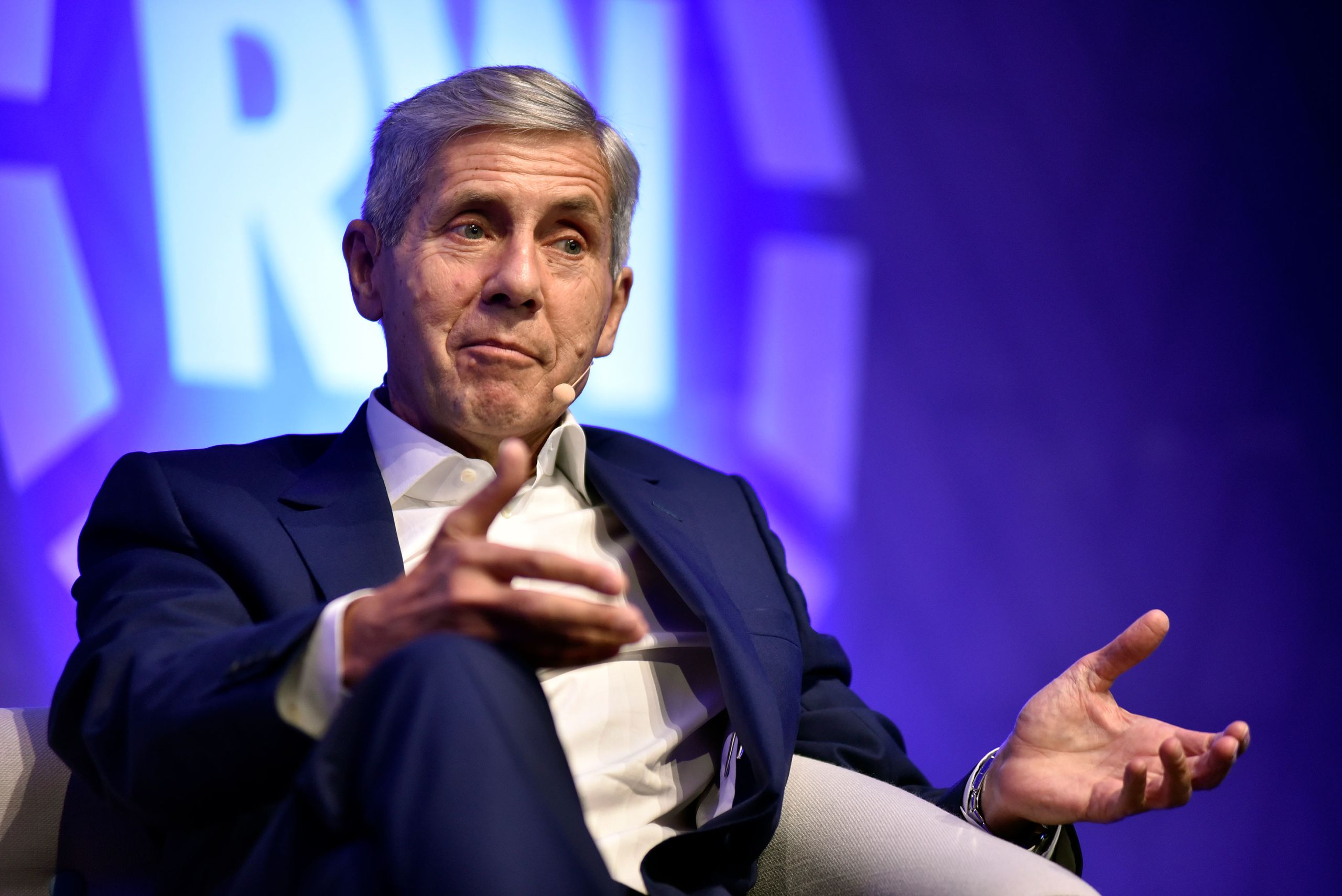
Lord Stuart Rose
Lord Stuart Rose
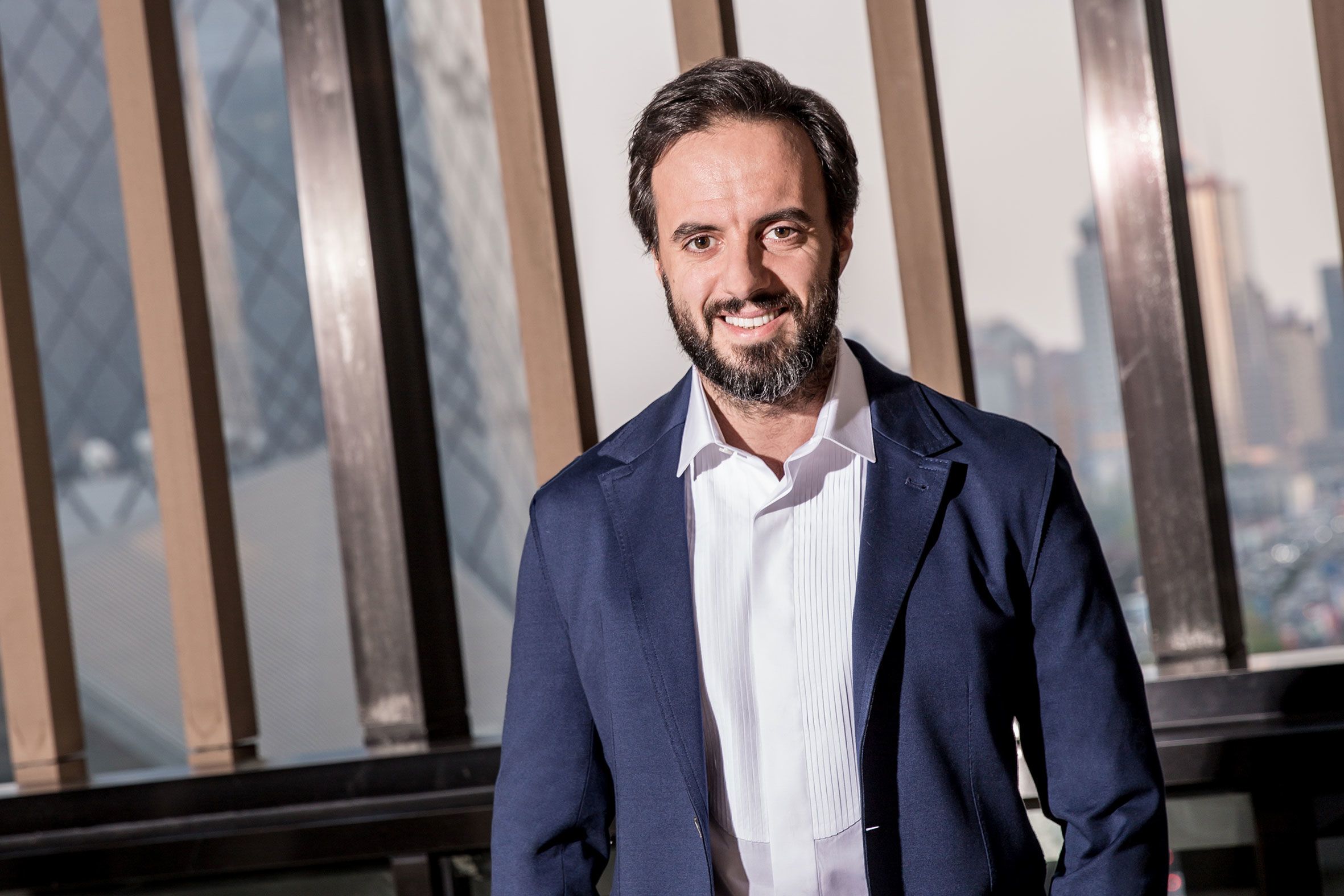
José Neves
José Neves

Jacqueline Gold CBE
Jacqueline Gold CBE
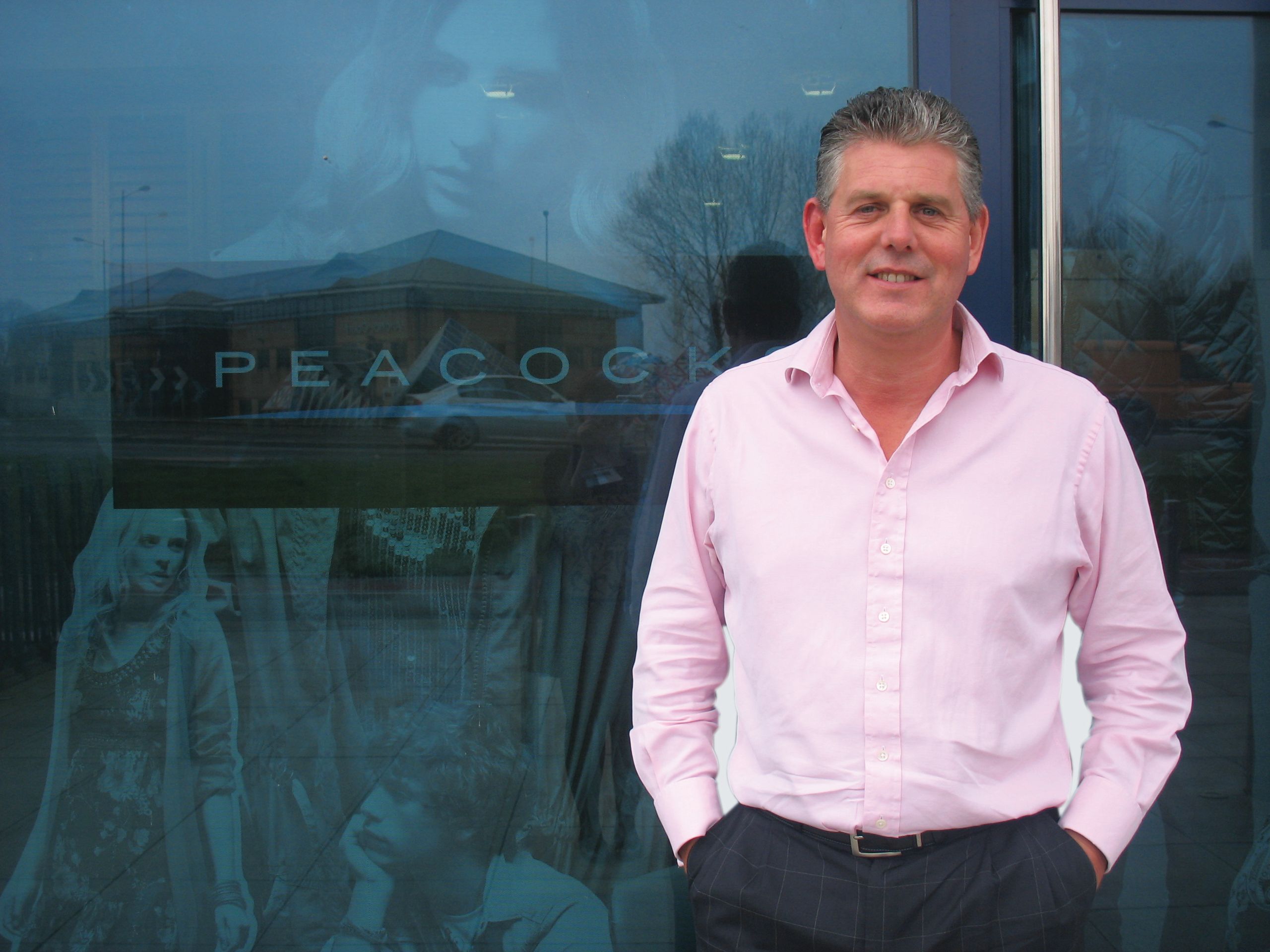
Philip Day
Philip Day

Alistair McGeorge
Alistair McGeorge

Nitin Passi
Nitin Passi
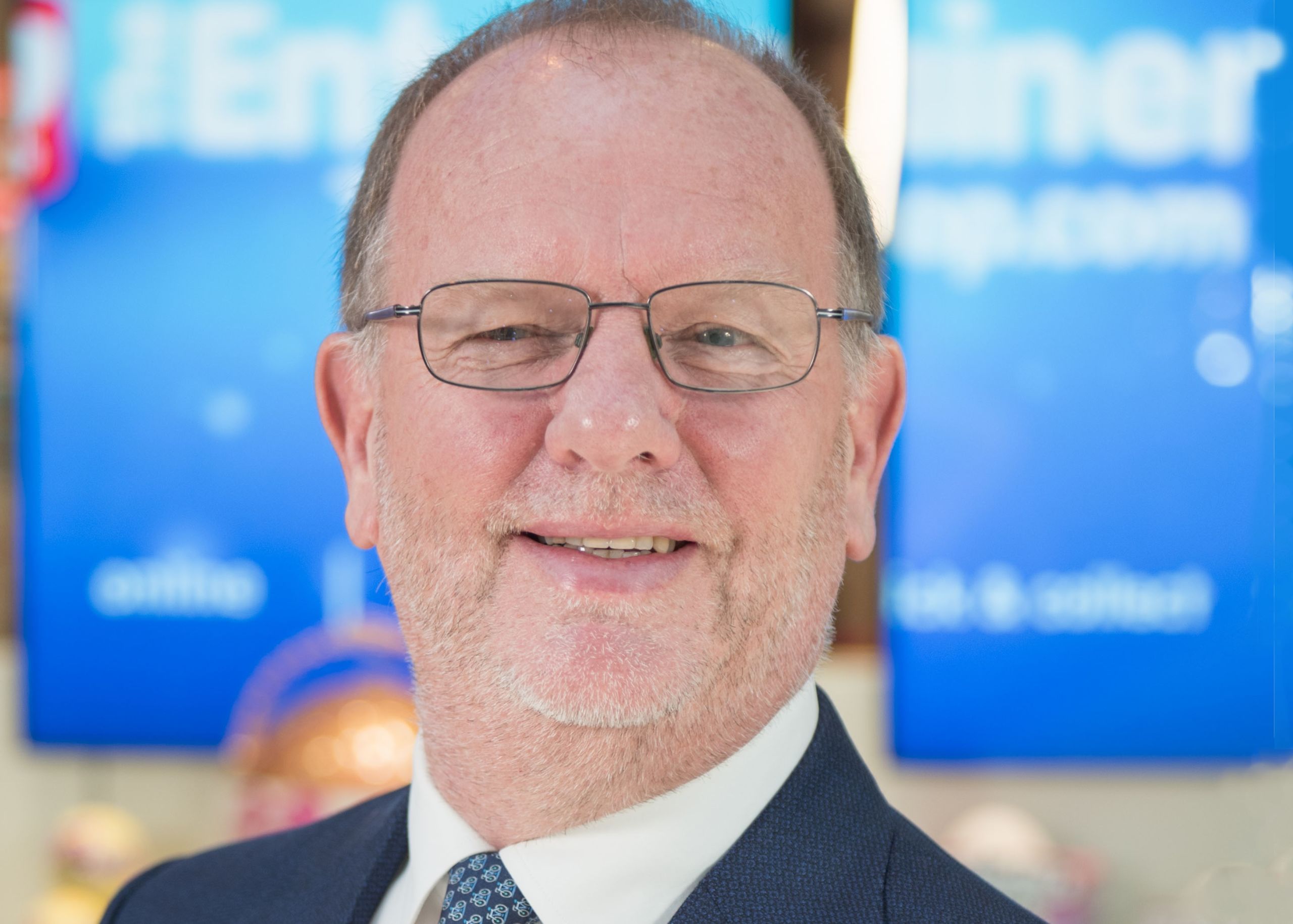
Gary Grant
Gary Grant
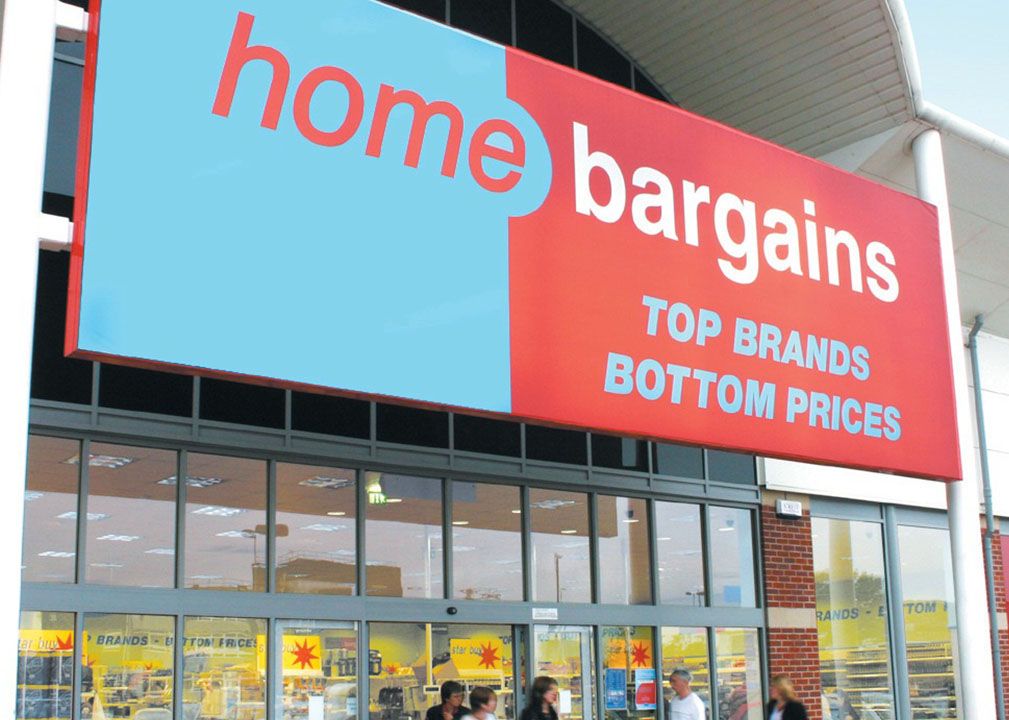
61. Barry Williams
Managing director, Poundland
▼ last year: 60
Under Barry Williams Poundland has to some extent had the wind taken out of its sales in recent months – a rebrand of parent company Pepkor to PepCo as it ramped up for a potential sale or float was put on hold because of coronavirus volatility.
Although the retailer has no plans to expand its UK store portfolio, Poundland has done a lot of work over the past year to stay front of mind for shoppers. Boss Barry Williams has put the wheels in motion to diversify the offer, moving the business from a ‘single’ to ‘simple’ pricing format and expanding the grocery offer into frozen food.
In recent months Williams has stepped up to the plate after being deemed an essential retailer amid the coronavirus outbreak and has kept most of its 850-strong store estate open, putting 100 stores into “hibernation”.
Poundland capitalised on changing shopping habits during the tough economic climate of recent years – the business returned to a pre-tax profit of £15m in 2018 – and Williams appears well placed to support consumers as a recession looms post-Covid-19.
62. Julian Dunkerton
Founder and chief executive, Superdry
▲ last year: 65
Julian Dunkerton is back at the helm of Superdry after his interim role as chief executive was made permanent in October 2019.
In the months since, he has spearheaded the retailer’s transformation plan centred around “evolving the brand and re-energising product”.
One of Dunkerton’s first moves was a successful launch on Gen-Z favourite TikTok in Australia. The brand employed Aussie influencers to garner a 15 million-strong organic reach for its winter campaign as it targets a younger demographic.
Covid-19 chaos has thrown the burgeoning strategy into flux and in March Dunkerton revealed Superdry was seeking additional financing owing to the “very fluid and uncertain” pandemic situation.
Superdry has continued to struggle financially, even before the coronavirus outbreak. Group sales remained flat at £872m over the year to April 2019, following 16% growth the year before.
But shopper footfall has bounced back at reopened Superdry stores in Germany, so Dunkerton will be hoping for the same when the UK emerges from lockdown. On May 7, Dunkerton said footfall in Germany had dropped about 70% immediately after lockdown but that the decline had improved to 30% over the course of a week.
And Superdry’s online sales have risen strongly across Europe. In May, the retailer reported online sales had almost doubled in the past four weeks and made up for a third of lost in-store sales.
With grounds for optimism, will Dunkerton’s planned transformation push through?
63. Lord Stuart Rose
Chair, Ocado and Fat Face
▼ last year: 49
Ocado chair Lord Rose was laid low by coronavirus earlier this year – it was “like being hit by a bus”, he said – but if that was a low point, he should have a high one to look forward to.
In September Ocado’s joint venture with Lord Rose’s former employer Marks & Spencer should go live. It will be a landmark moment for M&S, which at last will be able to sell its full food range online, and for Ocado as it seeks to sell its platform to retailers worldwide.
For those reasons it will surely be a landmark moment for Lord Rose, too, through his leadership roles at one of retail’s most established names and one of its new generation stars.
Lord Rose has continued to speak up on behalf of the industry, urging calm at the height of coronavirus panic-buying by shoppers.
He told Radio 4’s Today programme: “There is a billion pound's [worth] more food in people's larders than there was a couple of weeks ago – what are they doing with it? How much food do you need to eat? How much do you need to store away? Please show some restraint. There is no shortage of food ... Nobody will starve."
64. José Neves
Founder and chief executive, Farfetch
▼ last year: 40
José Neves has continued to invest in innovations and collaborations that will benefit his luxury fashion marketplace and help the business gain market share.
In the past year Farfetch has acquired fashion platform New Guards Group for £556m, partnered with second-hand clothing platform Thrift+, launched a flagship store on Chinese retailer JD.com’s app and made a wave of new appointments, including the creation of two new roles – chief data officer and chief brand officer.
Farfetch has also been developing its white label offering, Farfetch Platform Solutions, and it confirmed in April 2020 that it had launched its “state-of-the-art” platform for Harrods.
Despite cementing its reputation as a tech titan, such investments have impacted Farfetch’s profitability. While the business passed the £1bn sales mark in 2018, still it made a pre-tax loss of £74m.
With critics questioning whether the business should be investing so heavily at a time when its own losses are widening, Neves will be hoping that the tech prowess he has achieved for Farfetch should come into its own over the next year. As his vision for the future of fashion plays out, will we see more upscale brands like Harrods joining the platform to benefit from its expertise?
65. Jacqueline Gold CBE
Chief executive, Ann Summers
▼ last year: 46
At the helm of Ann Summers for more than 20 years, Jacqueline Gold has fought over the past year to win better property terms from landlords.
That followed a difficult 2017/18 financial year where the retailer reported a £3.3m pre-tax loss on sales only marginally ahead at £110m.
In August 2019, Gold revealed Ann Summers had secured the future of about 95 of its shops following discussions with landlords but said the remainder, about five branches, may have to be put through a CVA. Adviser Deloitte had been brought in to help.
Speaking to Retail Week, Gold explained that new terms had been sought on the back of a “fundamental shift in the retail property market” and said she was resolute on finding a solution. “We cannot allow the future success of our business to be jeopardised by the handful of landlords who won’t come to the table”.
Despite the coronavirus crisis adding further pressures to Ann Summers’ store estate, the business is benefiting from an uptick online – purchases of its sex toys rose 27% year on year in April 2020.
66. Philip Day
Owner and chief executive, Edinburgh Woollen Mill Group
▼ last year: 51
In December last year, billionaire Philip Day’s Edinburgh Woollen Mill Group – which includes brands Edinburgh Woollen Mill, Peacocks, Jaeger and Austin Reed – posted an increase in profits to £23m after tax for the 27-week period to March 2, 2019.
With plans to continue building a “stable of brands that appeal to consumers across a range of different price points”, acquisitions have been high on Day’s agenda.
In July 2019, the mogul bought Bonmarché out of administration for £5.7m, after convincing the retailer’s largest investor, Artemis, to sell its stake. And in August 2019 Day attempted to buy Jack Wills, but he lost out to fellow retail tycoon Mike Ashley.
Day plans to use his “successful track record within the retail sector, especially in turnaround and distressed situations” to ensure the long-term future of Bonmarché.
That has been evident in Edinburgh Woollen Mill’s response to the pandemic. In April the group inserted clauses into new leases being signed for Bonmarché stores to ensure it would not have to pay any rents upfront until the lockdown was lifted.
Will the retail distress situations as a result of the emergency allow Day to add more businesses to his empire?
67. Alistair McGeorge
Non-executive chair, New Look
▼ last year: 57
Having led New Look in an executive capacity since November 2017, Alistair McGeorge stepped aside to become non-executive chairman in January, following Nigel Oddy’s promotion from chief operating officer to chief executive.
Under McGeorge’s tenure, the fashion retailer underwent a turnaround programme that included store closures and job cuts through a CVA, ending international operations to focus on its core UK and Irish market, and a financial restructure.
Now McGeorge will be helping Oddy steer New Look into the black. In February the retailer reported a statutory loss before tax improved in the year to date to £1.2m versus a loss of £63m in the comparable previous period, helped by cost control and lower markdown.
However, in March, owing to the pandemic, it was revealed that New Look had asked landlords for a three-month rent holiday, had paused all clothing production and was implementing other cost measures such as suspending payments to suppliers. The latter measure drew criticism, but the retailer asserted it had limited options and said it was "a matter of survival”.
While he may have stepped back a little, the experienced McGeorge is likely to play a key role in helping New Look navigate the crisis.
As chairman of the Retail Trust since April 2018, he is an advocate for the retail industry at large.
68. Nitin Passi
Chief executive, Missguided
▼ last year: 66
Nitin Passi has had a tough few years as head of fast-fashion brand Missguided, but there are tentative signs of recovery for the business.
It suffered a fall in profitability in 2017/18, attributed to a “premature” management restructuring that had “diluted” Passi’s influence.
In 2019, back under his influence, Passi slashed Missguided’s marketing costs, which led to a 2018/19 sales slump of 13% from £216m to £187m. But this move paid off with underlying profitability restored over the year to March 2019 as the brand posted positive EBITDA of £3.5m – a staggering improvement on the previous year’s £26m loss.
Profits took a hit again in July 2019 after the retailer lost £2.25m in a lawsuit brought by Kim Kardashian West for its use of her “persona and trademarks”.
However the pandemic has played to Missguided’s home advantage.
Under Passi’s steer, Missguided has capitalised on the shift to online and consumers staying at home by launching loungewear ranges, alongside clothing lines tailored to popular lockdown TV hits such as Tiger King, promoted via social media campaigns to its 6.5 million+ followers. In April, Missguided also launched a Heroes T-shirt, with 100% of profits going to NHS charities.
Whether Passi can grow the business into the multi-billion-pound empire he envisioned remains to be seen, but his decisive response to the slew of challenges Missguided has faced makes him an influential player and one to which others focused on a business turnaround should look.
69. Gary Grant
Co-founder and executive chair, The Entertainer
▼ last year: 67
Gary Grant continues to spearhead evolution at The Entertainer, the toy brand he launched with his wife in 1981.
Store growth has soared almost 65% over the past five years with acquisition and expansion the name of the game, including the purchase of the Early Learning Centre and Spanish toy retailer Poly, and franchise deals across the Middle East and Asia. In the UK, it now operates 172 stores.
Grant’s approach continues to pay off with group pre-tax profit jumping to £15m in 2018/19, and sales hitting £199m. However, Grant announced in November 2019 that The Entertainer wouldn’t be opening any new UK stores for the foreseeable owing to the burden of business rates.
Following the coronavirus outbreak, The Entertainer shuttered all physical outlets at the end of March and, while its online business remains open, Grant has revealed that the business is working doubly hard to stay afloat.
Speaking to The Guardian in May, he said that “sales were down by three quarters despite a 10% rise online”. He also revealed that the business was experiencing Black Friday levels of demand but could not meet them as its warehouse was only operating at 40% capacity because of measures to keep staff safe.
Grant says he is hopeful that the business will become “stable again” once he can open The Entertainer’s doors once more. With his track record pre-coronavirus financial performance a return to earlier success seems inevitable.
70. Tom Morris
Founder, Home Bargains
▼ last year: 68
Tom Morris has continued the aggressive expansion of his Home Bargains empire over the past year – and he’s determined not to let the pandemic slow down his strategy.
The family-owned discounter has maintained a high level of sales growth over the past five years, with sales up15% to £2.4bn in the year to June 2019.
Morris – a famously low-key businessman – quietly built an empire from a Liverpool market stall in 1976 and the business today now comprises about 506 stores and 22,000 staff. Already the largest independent grocer in the UK, Morris’ primary strategy over the past few years has centred around physical expansion, adding new outlets at a rate of 20 to 30 a year.
The retailer has remained open during the coronavirus crisis, implementing new social distancing rules for shoppers, and even launched a new store in Chatham, Kent, as the pandemic waged on.
As the tough financial circumstances brought on by the pandemic set in, consumer appetite for discount products may grow once more and Morris – armed with his dogged expansion plans, retail flair and eye for costs – is well placed to profit.
71. Deirdre O'Brien
Senior vice-president of retail and people, Apple
▲ last year: 72
Apple’s long-serving HR boss Deirdre O’Brien took over from Angela Ahrendts in April 2019 and expanded her role to become senior VP of retail and people.
O’Brien’s remit, as described by Apple, involves “enriching the lives of millions of Apple customers every year” while helping to “connect, develop and care for its employees”.
Her customer and people strategy has really shone in the retailer’s response to the Covid-19 outbreak. In March, before UK lockdown came into force, Apple sent a signal to the market by shutting all its stores outside China for two weeks to help limit the spread of the virus.
Apple also further prioritised its customers, employees and suppliers by announcing in March that it was committing £12m to “help with worldwide recovery".
The company has retained its appeal during the pandemic too; posting revenue of $58bn (£46bn) for the second quarter ending March 28 – up 1% on the previous quarter. Apple also reported record services revenue and a quarterly revenue record for its wearable devices. As a 30-year Apple veteran, O’Brien is well placed to continue to fuel the tech titan’s retail power.
72. Richard Pennycook
Chair, Retail Sector Council and 2 Sisters
▼ last year: 30
Richard Pennycook has rejigged his portfolio of interests this year, stepping back from some high-profile roles and adding new ones.
Pennycook handed over his position as BRC chair, which he had held for two years, to former Asda chief executive Tony DeNunzio. And he stood down as chair of department store group Fenwick, along with chief executive Robbie Feather, as the retailer’s founding family members assume greater control to steer it through the coronavirus crisis.
He also attempted to find new ways to address the perennial problem of business rates on the government’s Retail Sector Council, although finding a solution proved elusive.
Pennycook will not be disappearing from the retail scene though. Earlier this year he became chair of food supplier 2 Sisters and, as the retail and leisure industries grow closer, he remains chair of online travel agent On the Beach.
Famous for his role in saving the Co-op, Pennycook is likely to remain influential in retail over the coming year.
73. Federico Marchetti
Chairman, Yoox Net-a-Porter
▼ last year: 48
Federico Marchetti stepped aside as chief executive to become Yoox Net-a-Porter (YNAP) chairman in March 2020 to support owner Richemont in its turnaround efforts to make the company profitable.
Marchetti is a YNAP veteran, having led fashion retailer Yoox since it launched in 2000, and then taking the reigns as YNAP boss after Yoox merged with Net-a-Porter in 2015.
With 4.2 million active customers in 180 countries, YNAP is a global fashion behemoth but the group has been struggling recently. It fell short of its €4bn (£3.6bn) revenue target this year, reported its weakest profit margin in a decade, and Marchetti failed to get a new technology and logistics platform migration off the ground in 2019.
While its bottom line is taking a hit, Marchetti’s steer in the retailer’s response to the pandemic has been valiant and has demonstrated a commitment to community and customers.
In March YNAP offered out the group’s premier delivery services fleets to support charity partners across London, New York, Milan and Hong Kong in delivering essential supplies to vulnerable communities.
In May, the group stepped up its efforts, delivering more than 3,000 items of PPE to front-line hospital workers and donating some 2,200 care packages to NHS staff.
74. Sir Philip Green
Owner, Arcadia Group
▼ last year: 59
He may be down, but Sir Philip Green is not out.
While it would be an understatement to say the past year has not been Sir Philip's finest – with slumping sales, a £177m loss, store closures, and a damning entry in the 2019 Sunday Times Rich List that valued his group as “worthless” – Green’s leadership of Topshop and recent attempts to maintain the retailer’s presence on the high street mean that all eyes are on him.
In June 2019, Green managed to save his fashion empire – which owns Topshop, Topman, Dorothy Perkins, Evans and Miss Selfridge – from administration by securing a £50m rescue deal that triggered the closure of 48 stores and 1,000 jobs. Once the plan is in place another 25 stores and 500 jobs will be axed.
In recent months, the coronavirus crisis has tightened the screw, with more than 100 stores expected to permanently close by the end of August.
Green was met with a public backlash in March after appealing for taxpayer help as he furloughed 14,500 of the group’s 16,000 employees.
While the businessman continues to stir up controversy, the industry will be watching Green closely over the coming months to see if he can maintain his Arcadia empire. If he can weather this storm it will say a lot for the future of the high street and its survival in the post-pandemic landscape.
75. Karen Hubbard
Chief executive, Card Factory
▶︎ last year: 75
The only female boss in a top FTSE job, Karen Hubbard is spearheading expansion as chief executive of the UK’s largest specialist greetings card retailer.
In November 2019, Hubbard led on the retailer’s tie-up with Aldi – opening a new channel to reach customers – and by the close of the year had achieved the brand’s goal of expanding at an annual rate of 50 shops, with 51 new Card Factory stores opened.
For its 2018/19 financial year, the retailer posted a 56% jump in online sales and “best in class” EBITDA margins, however pre-tax profit had dropped to 8% due to foreign exchange and national living wage headwinds.
Hubbard’s growth streak has continued in 2020, even during the coronavirus crisis. While stores remain closed and 90% of its workforce are furloughed, the retailer reported in May that online sales had rocketed by 268% since the beginning of UK lockdown.
In response to this increased demand, and to support social distancing, Card Factory has established a second fulfilment unit in Wakefield. Hubbard has also overseen the launch of the Card Factory Foundation, a relief fund for colleagues experiencing financial hardship.
As the UK lockdown eases, Hubbard will leverage her experience in the value arena to coax consumers back to stores.
76. Jason Hargreaves
Chief executive, Matalan
▼ last year: 63
Chief executive since 2013, Jason Hargreaves is leading his family-owned fashion and homeware business in what the retailer has called the most “difficult and unpredictable time” in its 35 years of trading history.
In January 2020, the retailer had achieved an uptick in sales during its peak trading period, with sales of £134m for the five weeks to January 4 up from £134m for the same period the previous year.
However, in May it was reported that Matalan was seeking £50m to help it survive through the coronavirus pandemic after temporarily shutting 232 stores. While it had reported a “healthy level of liquidity” prior to the pandemic, Matalan said it was forced into “drawing down fully against existing revolving credit facility having never before done so”.
But operating in a tough climate isn’t new for Hargreaves and he’s well positioned to lead Matalan through this turbulent period – he had achieved two consecutive years of increasing sales with total sales up 4% to £1.1.bn in 2018/19.
At the start of the year, Hargreaves said it was “more important than ever to evolve and to be agile” for the retailer to progress its strategy. The billionaire businessman will be living by these words in the months to come.
77. Emily Weiss
Founder and chief executive, Glossier
NEW ENTRY
Emily Weiss makes her debut in the Retail 100 following a strong year for her cult beauty brand Glossier.
American Weiss is transforming how consumers purchase make-up by selling directly to them through social media – the brand currently has 2.8 million followers – and bypassing traditional retailers.
This direct-to-consumer model has certainly struck a chord with shoppers – all three million of them. Last year Glossier closed a $100m (£79m) series D funding round led by Sequoia Capital that valued the company at $1.2bn (£949m), a milestone for Weiss who launched the business in 2014 aged just 29.
The brand has also accelerated its international strategy. With two permanent stores in New York and Los Angeles and pop-ups across the US, in November last year Weiss brought Glossier to the UK with its first London pop-up. In January Glossier revealed it would be keeping the store open until December following an “overwhelmingly positive response from shoppers”, with more than 100,000 visitors and “the highest average daily sales of any of its pop-ups”.
While Covid-19 has paused bricks-and-mortar activity, Weiss has pivoted quickly and, in April, announced the launch of a new beauty product, Glossier’s first ever hand cream with a split of sales proceeds going to healthcare workers.
78. Graham Bell
Chief executive, B&Q
▼ last year: 73
Kingfisher veteran Graham Bell is focusing his efforts on investing in digital and boosting multichannel as B&Q battles stagnant sales.
The DIY giant has continued to struggle with sales growth against a backdrop of difficult market conditions in the UK and France, although encouraging online figures have provided some hope.
In 2018/19, the retailer achieved a 42% jump in click-and-collect sales following the rollout of its one-hour service, while mobile sales were up 44%. However, its digital business accounted for just 5% of B&Q’s UK sales in 2018/19 so Bell has work to do.
B&Q also suffered a Covid-19 hit after initially closing all stores and offering only essentials online in response to the pandemic. For the three months to April 30, its sales plummeted 22% to £663m.
Having now reopened its 288 stores, with social distancing measures in place, Bell will be leading the retailer in a bid to shore up sales.
With so much scope for digital expansion, developing B&Q’s online offering seems to hold the key to the brand’s turnaround – making Bell, with his multichannel learnings from heading up Screwfix, the right person for the job.
79. Chris Dawson
Founder, The Range
▼ last year: 74
Chris Dawson has weathered a turbulent few years as he labours to grow The Range to his ambitious target of 600 stores from just over 175 outlets.
After the retailer’s potential IPO was nixed due to “crap” market conditions, pre-tax profits slipped 22% in 2017/18 to £54m, but the brand regained footing in 2018/19, with profits climbing to a high of £71m and sales steadily on the up.
Dawson’s long-standing strategy is to invest in scalability, with the biggest outlay so far being a new Plymouth HQ, which created 450 jobs when it opened in 2019.
During lockdown, Dawson kept The Range outlets open but that sparked a backlash including a petition calling for stores to close for being "wrongly categorised as essential" and complaints the brand was putting customers and staff at risk. There was further controversy when The Range was found to be selling packs of face masks for £60, £40 above standard retail price.
However, while the pandemic hasn’t been Dawson’s finest hour, The Range remains one of the UK’s top 50 retailers by sales. And, having received plaudits for his achievements in expanding The Range from a Plymouth market stall in 1988, Dawson’s retail influence continues to endure.
80. Dominik Richter
Founder and chief executive, HelloFresh
▲ last year: 88
Dominik Richter is enjoying a landmark year with HelloFresh’s sales and profits soaring.
Buoyed by increased demand during the coronavirus outbreak as consumers increasingly cook from home, the meal kit business recorded “very strong” year-on-year revenue growth of 66% to €699m (£623m) for the first quarter of 2020. Group EBITDA amounted to a positive €63m (£56m) – a turnaround from its €26m (£23m) first quarter loss last year.
HelloFresh has increased its active numbers by a whopping 68% year on year to 4 million and it delivered 111 million meals alone in the first quarter. Shares have also shot up 14% to a record high.
Speaking in May, Richter said: "On top of our already very strong first two months of the year, our meals have attracted significant additional demand in the second half of March, as the global pandemic hit all of our markets in short order."
As the driving force behind the brand’s success after launching the by-the-box delivery service in 2011, this next year is likely to see Richter cement his aim of making HelloFresh “the number one meal box service in the countries it serves".
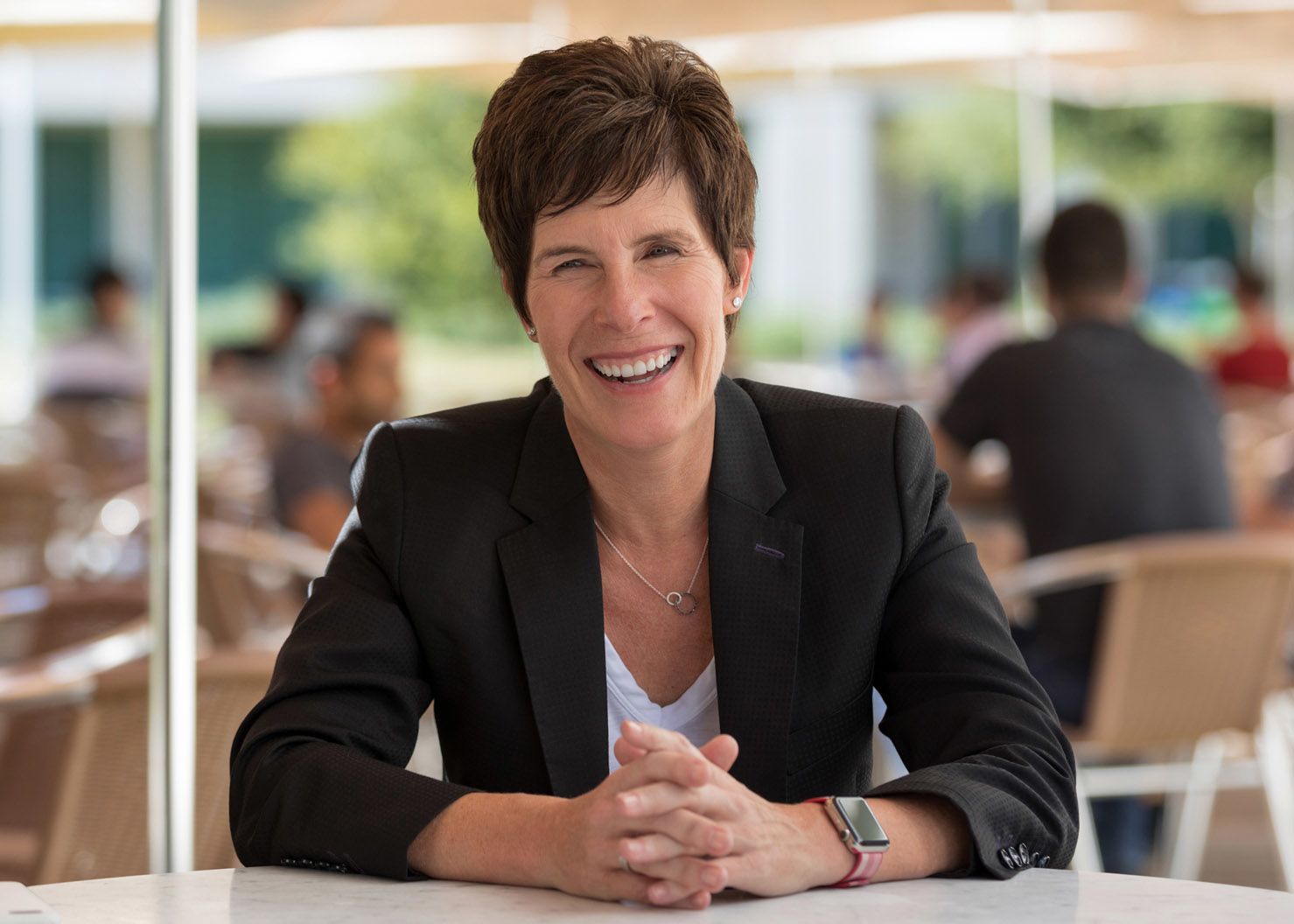
Deirdre O'Brien
Deirdre O'Brien

Richard Pennycook
Richard Pennycook
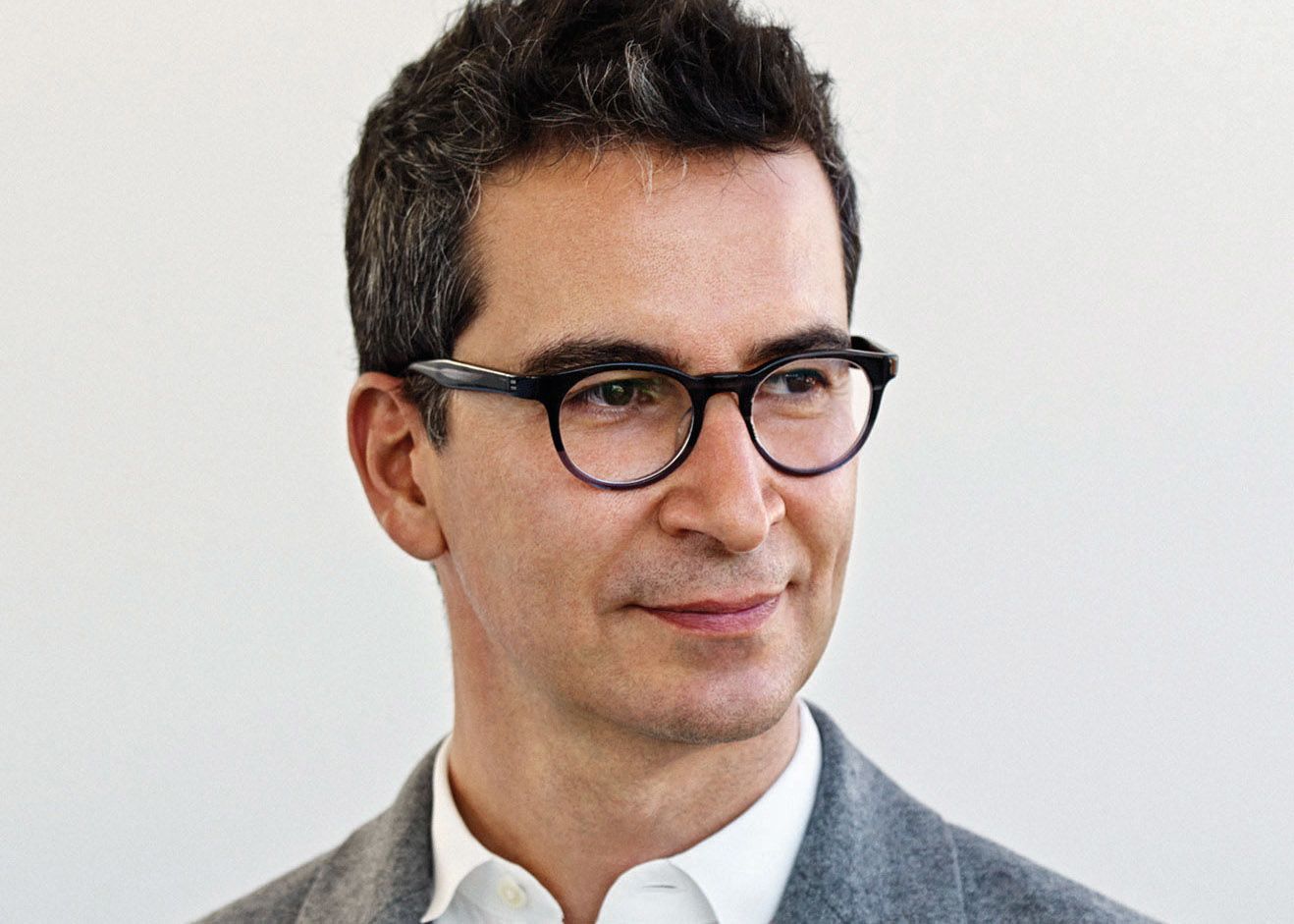
Federico Marchetti
Federico Marchetti
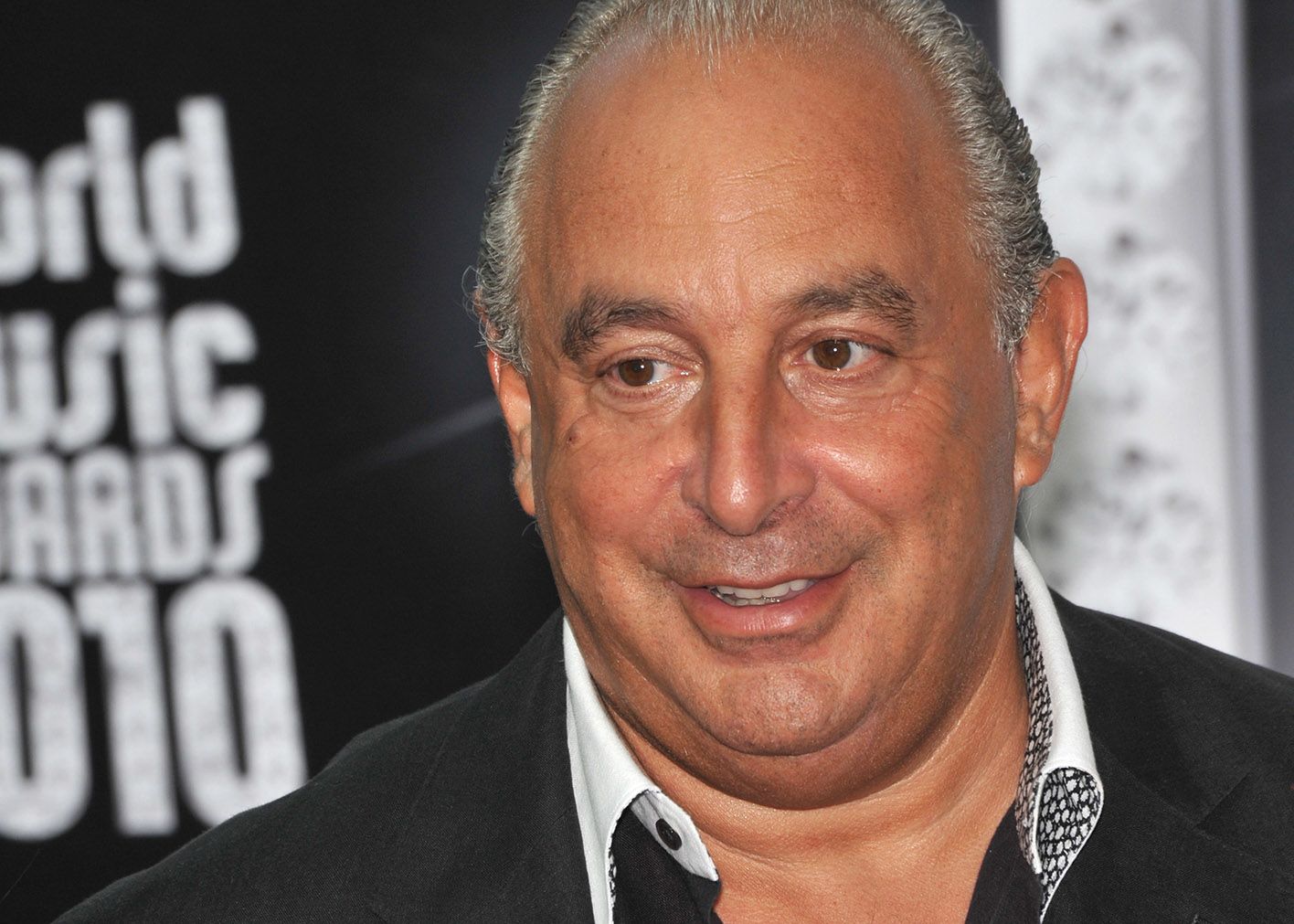
Sir Philip Green
Sir Philip Green
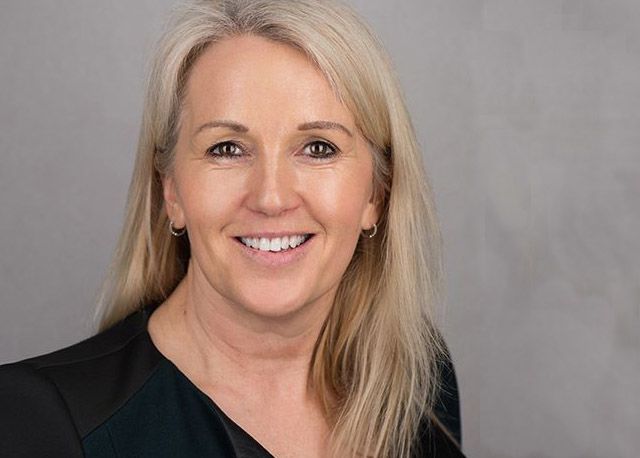
Karen Hubbard
Karen Hubbard
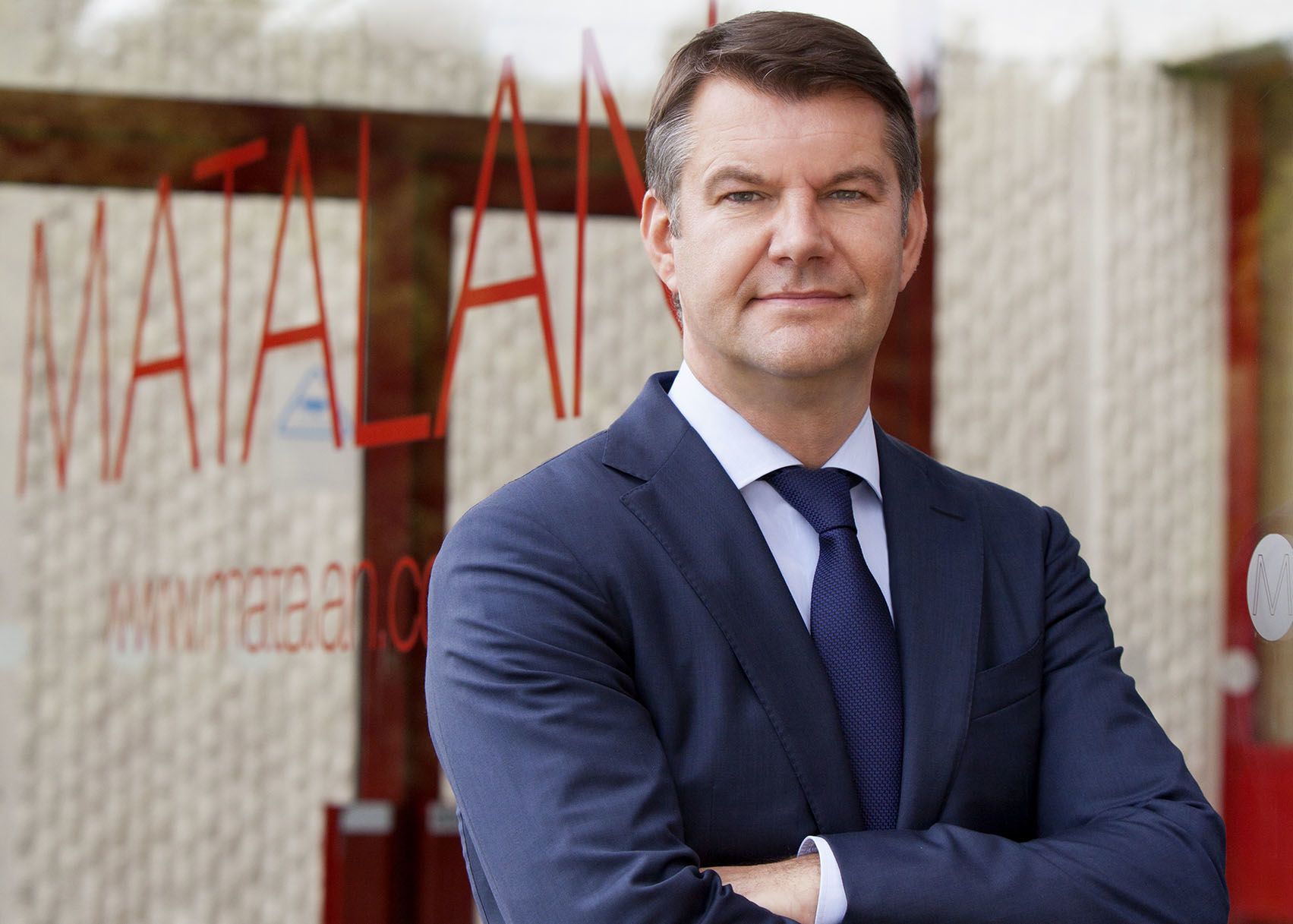
Jason Hargreaves
Jason Hargreaves

Emily Weiss
Emily Weiss

Graham Bell
Graham Bell
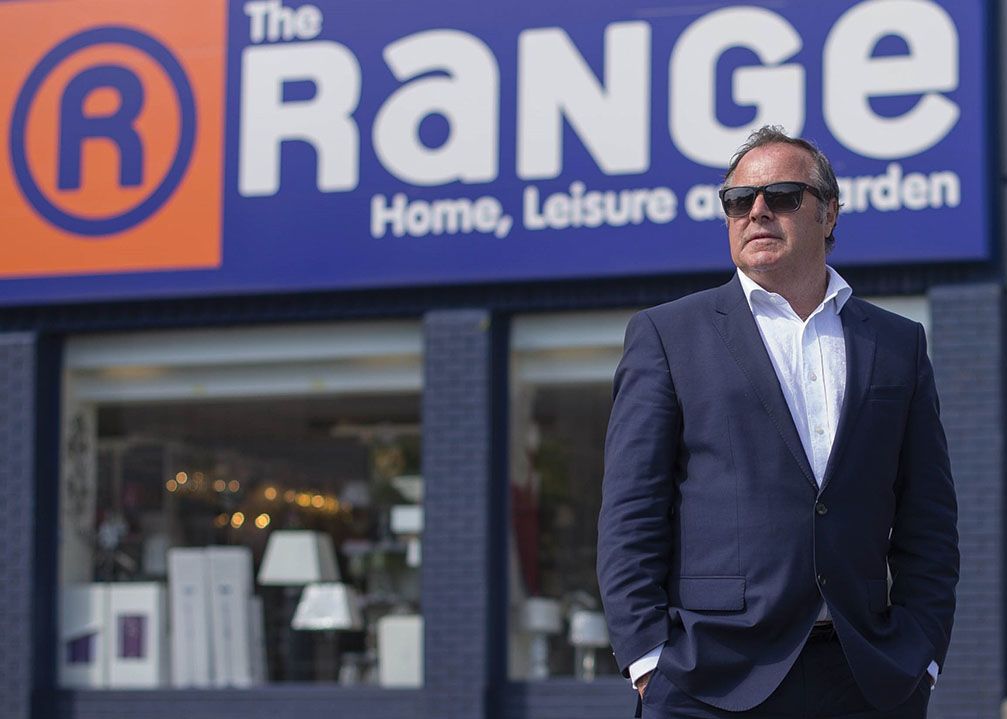
Chris Dawson
Chris Dawson

Dominik Richter
Dominik Richter

Clodagh Moriarty
Clodagh Moriarty
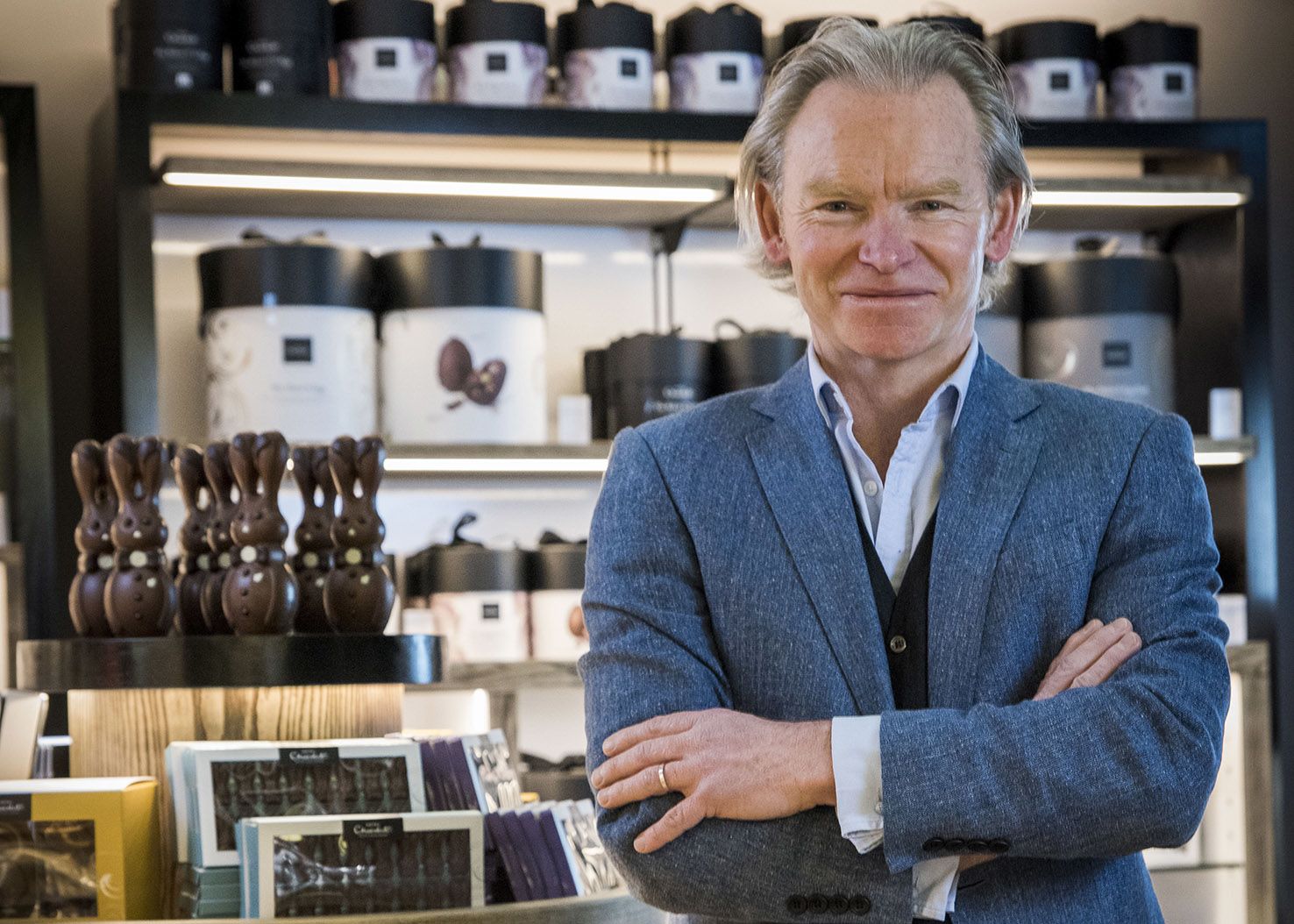
Angus Thirlwell
Angus Thirlwell

Ian Grabiner
Ian Grabiner
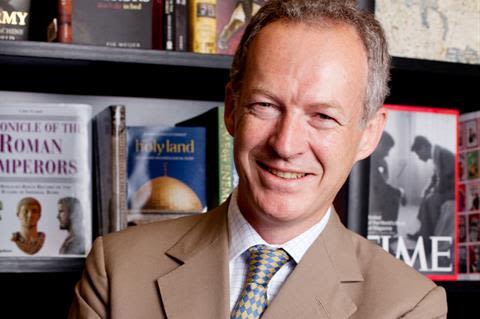
James Daunt
James Daunt

John Mewett
John Mewett

Linda Campbell
Linda Campbell

Maria Raga
Maria Raga

Charlotte Tilbury
Charlotte Tilbury
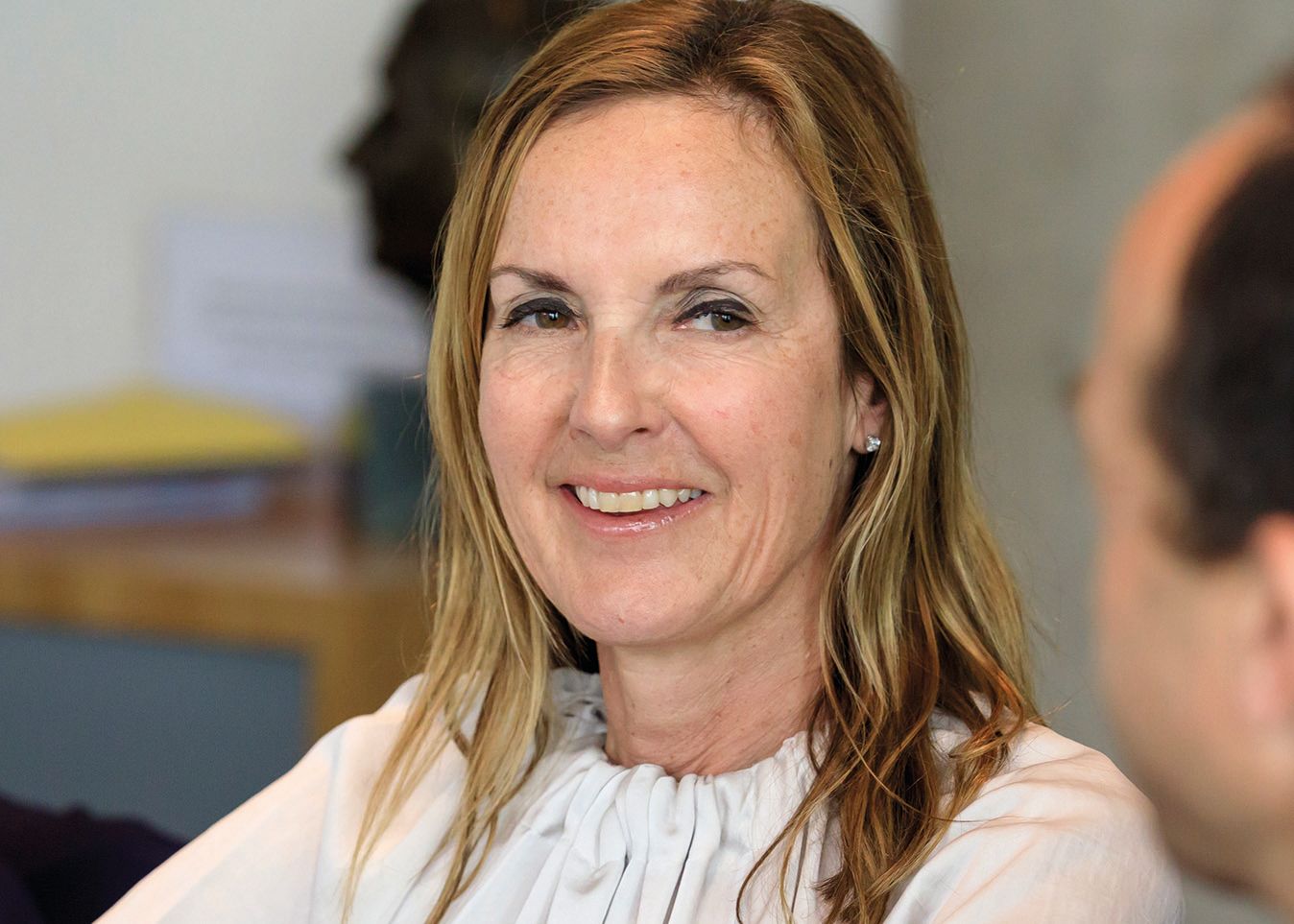
Katie Bickerstaffe
Katie Bickerstaffe
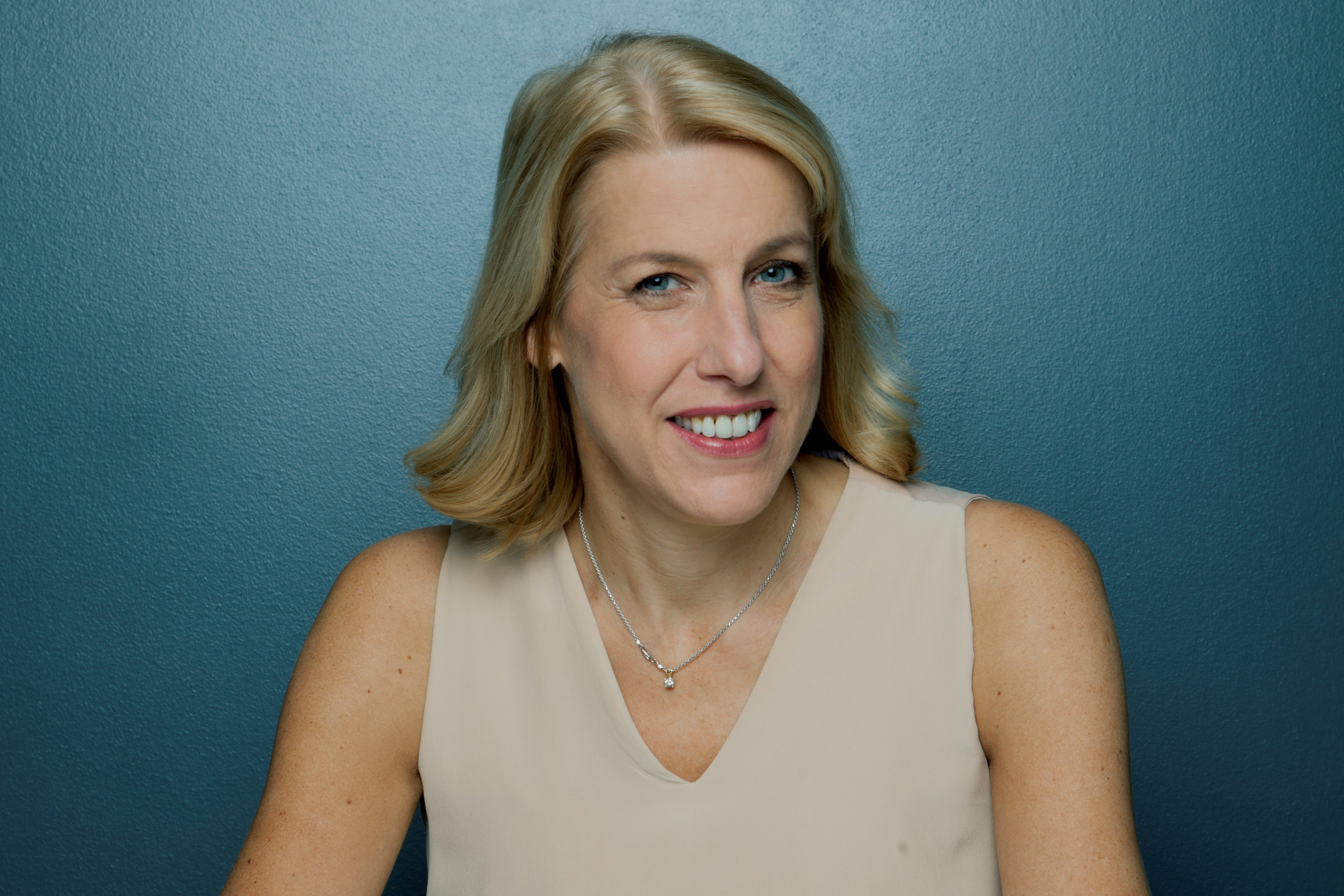
Helen Dickinson
Helen Dickinson
81. Clodagh Moriarty
Retail and digital director, Sainsbury's
NEW ENTRY
Clodagh Moriarty's increasing influence at Sainsbury's has earned her a spot in the Retail 100 for the first time.
Moriarty, who has been with the retailer for a decade and is seen internally as a future chief executive, was promoted to the newly created role of retail and digital director on new boss Simon Roberts' first day at the helm.
Having previously overseen the creation and leadership of the group's digital strategy across Sainsbury’s, Argos, Tu Clothing, Habitat and its Nectar loyalty scheme, Moriarty has now taken on additional responsibility for Sainsbury's and Argos stores. She will be charged creating an “integrated and seamless experience” across the group's digital and physical channels.
That drive has already come into its own during the coronavirus crisis, at a time when lockdown accelerated online orders and promoted customers to shop in contactless ways in stores.
Online grocery sales grew 8% in the year to March 7 and accelerated further during lockdown. Moriarty has overseen the rollout of the SmartShop app, which allows shoppers to scan and pay for items in store using their mobile phones.
Almost a third of all Sainsbury’s store sales during lockdown were made via SmartShop, a testament to the technology Moriarty and her teams have pulled together. The move to take Nectar digital has also proved seamless, with more than 4.5 million customers using the app at the start of March.
As Sainsbury’s focuses increasingly on its multichannel proposition, Moriarty’s star looks set to shine even brighter in the coming year.
82. Angus Thirlwell
Chief executive, Hotel Chocolat
▼ last year: 80
Angus Thirlwell has taken Hotel Chocolat from a niche corporate mint supplier to a successful ‘healthy luxury’ chocolate brand and he continues to innovate.
Following the introduction of vegan ice lollies in 2019, Thirlwell has turned his attention to the reinvention of hot chocolate and launched a £100 velvetiser which achieved “strong growth” and boosted sales in the run up to Christmas 2019.
Thirlwell’s innovations helped contribute to a strong upward sales trajectory for the business, with total sales up 14% to £133m for the 2018/19 financial year.
However, the impact of the pandemic has hit Hotel Chocolat hard, particularly as it generates 81% of its revenue from its physical stores. In May, the retailer announced it had opened a £35m credit line with Lloyds Bank, replacing its existing £10m overdraft facility, to provide “financial headroom” following a subdued Easter sales period owing to lockdown measures.
But it’s not all about the bottom line. Thirlwell has recently seen to it that the brand makes good on the third of its three core pillars – authenticity, originality and ethics – by offering a 50% discount to NHS staff and emergency workers.
While Thirlwell has work to do over the coming months to shore up the books, his approach in running Hotel Chocolat holds lessons for others in his determination to continually innovate and create products that resonate with changing consumer demands.
83. Ian Grabiner
Chief executive, Arcadia Group
▼ last year: 76
Ian Grabiner hasn’t had an easy ride as Sir Philip Green’s right-hand man and in charge of fashion giant Arcadia during tumultuous times.
In May 2019, Grabiner unveiled plans to shutter 23 stores as part of a CVA, which he said put the “right structure in place to reduce our cost base and create a stable financial platform”.
But the coronavirus pandemic has spelled yet more bad news for Arcadia as it furloughed all employees from its 550 shuttered stores along with the majority of head office staff. The retail group is estimated to have cancelled more than £100m in orders from suppliers.
With the group having raised £50m to secure its future, Grabiner has elected to receive no salary or benefits until the crisis is resolved.
Grabiner must now steam ahead with his turnaround plan against a perilous economic backdrop, with cutting costs now more important than ever for the once-mighty fashion empire.
84. James Daunt
Chief executive, Waterstones
▲ last year: 85
James Daunt brought Waterstones back from the brink after taking the top job in 2011. After slashing costs through a “horrible” restructure, he put the spotlight on multichannel development, in-store technology, localisation and making stores “welcoming and interesting places to browse and explore”.
This approach has delivered results. The bookseller recorded a 38% jump in pre-tax profit before exceptional items to £28m in the year to April 27, 2019 and sales edged up 1.8% to £392m during the period.
In June 2019, Daunt relocated to New York to mastermind the turnaround of US bookseller Barnes and Noble, recently acquired by Elliot Advisers. He remains at the helm of Waterstones, but from a distance.
Waterstones closed all shops during the pandemic, despite Daunt previously revealing the pandemic had generated “unprecedented demand for books”, with a 17% surge in sales.
A self-proclaimed introvert, Daunt has proven that he doesn’t shy away from tough decisions. This trait, alongside his focus on multichannel, will be required to pilot his various book empires safely through the turbulence of 2020. Having rescued the bookstore already by making bricks and mortar more relevant to customers, he may show new ways once again to steer high street businesses back to success.
85. John Mewett
Chief executive, Screwfix
▲ last year: 86
Screwfix has performed strongly under the direction of “proven operator” John Mewett over the past year, as the DIY business continued to expand its store network and click-and-collect service.
The retailer outperformed Kingfisher stablemate B&Q in the first half of 2019, with like-for-like sales growth of 5% boosted by the rollout of trade desks, new store openings and 18% online growth.
Under Mewett, Screwfix has prioritised smoothing the customer journey, bolstering mobile convenience and strengthening its multichannel operation – a prescient move given the Covid-19 pandemic.
Screwfix continued to trade amidst the chaos. It encouraged customers to use the home-delivery service and click and collect. The retailer also ring-fenced its stock of PPE products to donate to frontline NHS staff.
The pandemic prompted the brand to lean more on click and collect, which aligns with its pre-pandemic strategy. Mewett will now be looking for ways to strengthen this multichannel offering to continue to thrive in the post Covid-19 world. As a leader in the field, other retailers are likely to look to Screwfix for inspiration.
86. Linda Campbell
UK managing director, The Body Shop
NEW ENTRY
Named ‘one to watch’ in the 2019 list, Linda Campbell cements her position among the top 100 influential retail leaders this year.
The Body Shop’s UK managing director since January 2017, Campbell has had a vintage year at the helm as the retailer posted an 19% uplift in EBITDA for the third quarter of 2019 when UK like-for-likes climbed 3%.
In September 2019, under Campbell’s steer, the retailer unveiled a new store model on London’s Oxford Street with a strong emphasis on sustainability. All fixtures are “upcycled, recycled or reclaimed” and there is an ‘activist corner’ where shoppers can take selfies with sustainability pledges and suggest issues for the retailer to tackle.
Fast forward to March 2020 and the retailer’s strong performance – combined with its ability to move with societal and consumer shifts – saw it scoop Health and Beauty Retailer of the Year at the Retail Week Awards.
Before the pandemic, Campbell was focused on reconnecting shoppers with The Body Shop’s distinctive ethos, while investing in mobile-first initiatives to compete digitally. Now, with brand purpose taking centre stage and consumer demand shifting online, these two areas will be bigger priorities for Campbell in the coming year.
87. Maria Raga
Chief executive, Depop
▶︎ last year: 87
Maria Raga has enjoyed another strong year at the head of fast-growing pre-loved fashion marketplace Depop as she oversees the brand’s mission to reinvent shopping.
In 2019, following 85% year-on-year sales growth, Raga raised £50m to expand the brand – which boasts more than15 million registered users – further across Asia, Europe and the US.
Approximately 60% of its sales come from the UK, but the Gen Z brand is active in 147 countries and its popularity is soaring within the US where Raga has overseen the opening of two bricks-and-mortar stores.
Back in the UK, Depop launched a pop-up in Selfridges’ flagship department store in August 2019 and Raga is confident the youthful brand can maintain momentum.
She believes consumers are realising their shopping habits are unsustainable and this places Depop in prime position to cater to future markets. “There are reports that show that in five years resale will be as big as fast fashion,” she told The Guardian in 2019.
Sustainability looks unlikely to drop down the agenda because of coronavirus, which might even speed up the trend. If that happens, pre-loved platforms such as Depop look well placed to reap the rewards.
88. Charlotte Tilbury
Founder and chief executive, Charlotte Tilbury
▲ last year: 90
Charlotte Tilbury continues to transform her eponymous brand into a cosmetics powerhouse, with cult status and an army of celebrity fans.
The hands-on cosmetics boss has combined smart influencer-led social media tactics with inspired product and marketing decisions to hit £145m in sales for the 2018 financial year, a 45% year-on-year increase.
It is clear Tilbury is passionate about the product lines she’s spent years perfecting and in August 2019 she demonstrated just how far she would go to protect them – winning a case against grocer Aldi which was found to have breached copyright with a cheaper, lookalike bronzer.
In 2020, Tilbury has been busy expanding her most popular product ranges, adding 10 new ones to her smash-hit Pillow Talk make-up line and launching a serum version of her much-lauded Magic Cream.
With products stocked in concessions with retailers including Harrods, Harvey Nichols and Space NK, the Covid-19 crisis will no doubt have slashed physical sales. However, with Spanish fashion and perfume brand Puig having acquired the business in June in a deal that has valued the company at up to £1bn, Charlotte Tilbury is well placed to survive the storm, make-up intact.
89. Katie Bickerstaffe
Chief strategy and transformation officer, Marks & Spencer
NEW ENTRY
As Marks & Spencer presses on with its turnaround programme and adapts to a post-coronavirus landscape, Katie Bickerstaffe has been handed a key role.
Bickerstaffe, who joined M&S’ board as a non-executive director in 2018, this year switched to an executive position as chief strategy and transformation director.
She brings plenty of experience to the role. She was formerly chief executive of Dixons Carphone’s flagship UK business and was there throughout its transformation, including the merger of the eponymous electricals and mobile communications retail groups. Before that Bickerstaffe held senior roles at grocers Somerfield and Kwik Save.
As well as having been deeply involved in turnarounds, Bickerstaffe has also been a standard bearer for modern ways of working by maintaining a four-day working week so that she could spend time with her children. While at Dixons Carphone, she had a poster on her wall by graphic artist Anthony Burrell which read “Work hard and be nice to people”.
At M&S there is hard work to be done as it pursues its ‘never the same again’ agenda; the hope is that Bickerstaffe will drive it to new heights.
90. Helen Dickinson
Chief executive, British Retail Consortium
▲ last year: 91
Since becoming British Retail Consortium (BRC) CEO in 2012, Helen Dickinson has made it her mission to have a positive impact on the industry. And never has this been so needed.
Research from the BRC and KPMG showed that year-on-year retail sales dropped in March 2020 by 4.3%, impacted by the pandemic. That is the worst decline on record.
The BRC joined forces with Retail Trust and RWRC in March to raise funds for CaRe20, an appeal to provide financial and emotional support to retail staff facing hardship during Covid-19. More than £600,000 has been raised so far with backing from retailers including Pets at Home and John Lewis Partnership.
Dickinson has also called for the sector to talk to the government with “one loud collective voice” to allow for efficient communication. Under her leadership, BRC has been working to ensure the right financial measures are put in place and that the government understands the reality of retailers’ situations.
As the sector reels from the pandemic and the UK likely plunges into recession, Dickinson will spend the next year advocating for retailers, using her platform to lobby the government to deliver measures to lighten retail’s burdens.
91. Nigel Oddy
Chief executive, New Look
NEW ENTRY
Nigel Oddy took the top job at New Look on January 1, succeeding Alistair McGeorge, having joined the fashion retailer as chief operating officer in April last year.
Oddy had previously been chief executive at The Range for just over a year and held senior roles at House of Fraser for 10 years, latterly running the department store business.
Oddy said he was appointed at a “pivotal moment in New Look’s development” with the retailer having “taken decisive steps to broaden the appeal of our product, enhance the customer journey and improve our lead times”.
McGeorge, now non-executive chair, said he believed Oddy was the right person to steer New Look, asserting: “Now is the right time for Nigel to become New Look’s CEO. Nigel has been running the business operationally since he joined us and in a short space of time has made significant improvements to our buying, product, supply chain and omnichannel offer.”
In February 2020, as the retailer posted reduced losses in its third quarter and a 24% reduction in stock units, Oddy looked primed to accelerate New Look’s transformation plans. However, with the pandemic putting New Look’s supply into disarray, it could be a while yet until Oddy’s strategy bears fruit.
92. Ben Francis
Founder, Gymshark
▶︎ last year: 92
It’s been another stellar year for Gymshark – the activewear brand Ben Francis launched from his garage aged 19. Sales surged by 71% to £176m in the year to July 2019, after more than doubling the year before.
Since handing over the CEO reins to Steve Hewitt in 2017, Francis has been tasked with ‘taking care of tomorrow’ for the brand, with a focus on marketing, branding and product development.
This includes spearheading growth through Gen Z darling TikTok. Social-savvy Gymshark was one of the first UK retailers to take advantage of the trending platform. By pushing its social offering, Gymshark has capitalised on the lockdown-triggered surge in demand, with global Google searches for ‘activewear’ reaching an all-time high at the end of April 2020.
Under Francis and Hewitt, Gymshark has also made landmark moves in its ‘globalisation phase’. In 2019, it launched a Hong Kong office and dedicated sites in several European markets, Australia and the US, with the latter now accounting for around half of total sales.
Gymshark may like others face issues arising from the pandemic, but its entrepreneurial verve and fresh ways of thinking mean it is one of the most exciting British brands to watch and learn from.
93. Damian McGloughlin
Chief executive, Homebase
NEW ENTRY
Damian McGloughlin makes his inaugural appearance in the Retail 100 having successfully executed an aggressive turnaround plan at Homebase this past year.
In February 2019, the DIY chain had reported a £115m loss following several bad decisions by its former owner Wesfarmers. Since then, under McGloughlin, Homebase launched a CVA closing 42 stores, acquired specialist retailer Bathstore, and invested £10m in store developments and refurbishments to entice customers back.
McGloughlin has also concentrated on getting staff trained to a higher standard. “Training our team is what ... I believe in. Getting the right people to deliver and service our customer,” McGloughlin commented in February.
This overhaul has paid off and McGloughlin has got Homebase back in the black, with the retailer posting a £3.2m return to profit and a 2.6% uptick in like-for-like sales during the year to December 29, 2019.
Having delivered an impressive transformation, McGloughlin has also taken bold action during the coronavirus pandemic. Although Homebase counts as an essential retailer and could have stayed open, he chose to close all stores in March to ensure the protection of staff. In May, the retailer begun reopening stores on a trial basis.
94. Graham Stapleton
Chief executive, Halfords
▼ last year: 93
After sliding into Halfords’ driving seat in January 2018, Graham Stapleton outlined a new UK strategy that included a website re-platform, store transformation programme and more Autocentre openings.
While Stapleton’s strategy has had to be readjusted during the pandemic, he’s well placed to deliver growth in the coming months having reported better than expected sales for the financial year 2020. In May, the cycling and autocentre retailer said it expected profit before tax to be at the upper end of its guided range of £50m to £55m.
While group sales for the four weeks to May 1 were 23% below the same period on a like-for-like basis, Stapleton said this was “better than we initially anticipated” and had been driven by stronger results during the UK lockdown in cycling as customers “explored alternatives to public transport and for ways to stay healthy”. On the flip side, the retailer’s motoring arm showed “overall weakness reflected [by] a significant reduction in car journeys”.
As the country looks towards the next phase of easing lockdown, Stapleton’s focus will be fixed on continuing to boost sales and finding ways to connect with consumers. Speaking in May, Stapleton asserted: “I am confident the actions we are taking now will put the business in a strong position when we emerge from the crisis and enable us to continue to deliver on our strategic transformation in the medium term.”
95. Wilf Walsh
Chief executive, Carpetright
▼ last year: 94
Wilf Walsh has spent six years progressing Carpetright’s road to recovery and the journey is not over yet. Walsh has been re-engineering every aspect of Carpetright in a bid to revitalise the brand, but that strategy has come at a cost.
As a result of its CVA and restructuring, group pre-tax losses hit £25m for the 2018/19 financial year while total Carpetright group sales declined by 13%. Group margin also declined, by 1.5%, to 55% as Carpetright invested in promotions activity to support its appeal following the CVA.
However, the company’s sale to Meditor in December 2019 is expected to help progress turnaround plans.
Carpetright chair Bob Ivell has said that “with a recapitalised business and the backing of a committed new owner with the resources to invest in Carpetright for the long term, we will be able to complete our recovery in the private arena and emerge as a stronger business.”
Recent investments steered by Walsh echo the retailer’s focus on long-term opportunities. For instance, in April, the retailer stepped in to sponsor Exeter City Football Club for a three-year term after its previous shirt sponsor Flybe went bust.
96. Louise Greenlees
President, TJX Europe
▶︎ last year: 96
Now in her fifth year as president of TJX Europe – parent company of TK Maxx – Louise Greenlees will be drawing from her considerable experience in the fashion sector to bring the brand safely through the coronavirus pandemic.
Greenlees had been investing heavily in IT, primarily supply chain systems, as well as UK bricks-and-mortar outlets and overseas expansion. The off-price giant has a well-established presence in Germany and Poland and recently moved into Austria and the Netherlands.
This strategy had been paying off with TK Maxx group sales steadily climbing to £29m in 2018/19, up from £27m the year before, driven by efforts to capture market share and grow customer traffic internationally.
While the pandemic resulted in TK Maxx halting all online orders in addition to shutting shops from March 19, Greenlees oversaw the reopening of its online business on April 30, having made changes to safeguard staff and customers.
Greenlees also supported the wider retail community during the crisis, with TJX pledging £100,000 to fund the industry’s CaRe20 appeal.
Having powered the retailer ahead in 2019, Greenlees has shown she has mettle to get TJX through the crisis and to push full steam ahead with her strategy.
97. Claire Davenport
Chief executive, Notonthehighstreet.com
NEW ENTRY
Claire Davenport took the reins as Notonthehighstreet CEO in August 2019, after Barrie Seidenburg stepped down owing to health issues.
Bringing a fresh perspective and digital nous, Davenport makes her debut in the Retail 100 as she exerts her influence in growing the online business.
An adviser to various private equity and venture-capital backed firms, Davenport brings notable digital expertise having previously held senior positions at Skype, Ofcom, VoucherCodes and, most recently, HelloFresh.
Commenting on the appointment, chair Darren Shapland said Davenport was poised to “take the business on to the next stage of growth”.
For Davenport this strategy involves taking a longer-term view. “I believe Notonthehighstreet has a lot more potential to unlock, building on its original premise and the great work that Barrie has started with the team to modernise the tech and create a first-class customer and partner experience,” she said.
Reporting an 82% surge in operating profits to £3m in the year to March 31, 2019, and active customers up 3% to 2.6 million during the period, Davenport is leading Notonthehighstreet at a good time.
With its online marketplace proposition, the retailer is also relatively protected from many of the biggest challenges facing retailers during Covid-19. However, it has gone out of its way to help the 5,000 partners who sell through its platform, launching a Small Business Supporter Campaign in April to champion entrepreneurs.
98. Rachel Osborne
Chief executive, Ted Baker
NEW ENTRY
Rachel Osborne has found herself in the hot seat, having been parachuted into Ted Baker at a challenging time.
Osborne initially came on board as chief financial officer in November 2019 and was promoted to acting CEO the following month after the business issued its fourth profit warning in a year, triggering then CEO Lindsay Page to leave.
Having joined Ted Baker from Debenhams, where she won respect from critics for doing a tough job well as CFO, Osborne has what it takes to power Ted Baker’s much needed financial transformation.
Already Osborne has reshaped the retailer’s leadership team with four directors axed in early 2020 and, in a bid to generate funds, she embarked on the sale and leaseback of the brand’s headquarters in March 2020 in a £79m deal.
Covid-19 has forced temporary store closures and led to the furlough of 2,000 workers. Osborne has suspended all non-essential capital expenditure and halted discretionary operating expenses in a bid to protect cash flow. She has also overseen the inception of ‘Ted’s Bazaar’ pop-up shops, donating 100% of profits to communities.
It’s fair to say Osborne has landed one of the toughest jobs in retail, but her experience at Debenhams and past senior finance roles held at the likes of Kingfisher, Vodafone and John Lewis show she’s the person to call in a crisis. Turning Ted Baker’s fortunes around would be a serious coup, confirming her status as a valuable player to have on side.
99. Alex Loizou, Mandeep Singh and Glen Walker
Founders, Trouva
▲ last year: 100
Online marketplace Trouva has been providing indie bricks-and-mortar boutiques with the tech to defy the ‘death of the high street’ since 2005. 15 years later and the business has now cemented itself as a global player thanks to the efforts of founders Alex Loizou, Mandeep Singh and Glen Walker.
After expanding into international markets in June 2018 with the launch of 20 Berlin-based boutiques, Trouva has enjoyed rapid growth in the past year and, as of December 2019, now offers more than 200,000 products from over 800 independent stores.
With 40% of Trouva’s network now outside the UK, it spans 12 European countries. In December 2019, the ambitious founders raised £17m to further expand their international offering, starting with the launch of its German website.
It remains to be seen how the pandemic and its economic fallout will affect Trouva’s plans, but the retailer is delivering orders as normal while offering boutique owners unable to operate their physical stores “a lifeline during this difficult time”.
The brand’s marketplace model and homeware-focus could make it one of the retail sector’s few pandemic success stories.
100. Will Kernan
Chief executive, River Island
NEW ENTRY
Will Kernan took the top job at River Island in September 2019 as the fashion retailer sought leadership outside the family and Ben Lewis – nephew of founder Bernard Lewis – took the role of chairman.
Kernan joins River Island following a series of launches and expansion such as the brand’s babywear range and pro-diversity campaigns, alongside its acquisition of fashion retailer Mint Velvet in March 2019 in a £100m deal and its new store opening in Essex.
Former boss of Wiggle and The White Company, Kernan brings an impressive CV and track record of growth and leadership in retail. These are vital skills for River Island as the brand seeks to improve its financial performance with sales sliding 2.6% to £920m in 2018.
Already Kernan has taken decisive action and in April 2020 he announced the permanent closure of womenswear label Harpenne, just seven months after its launch, to focus on “more established” brands in River Island’s portfolio.
All eyes will be on Kernan to see whether he can lead River Island to new heights in a tough time for fashion.
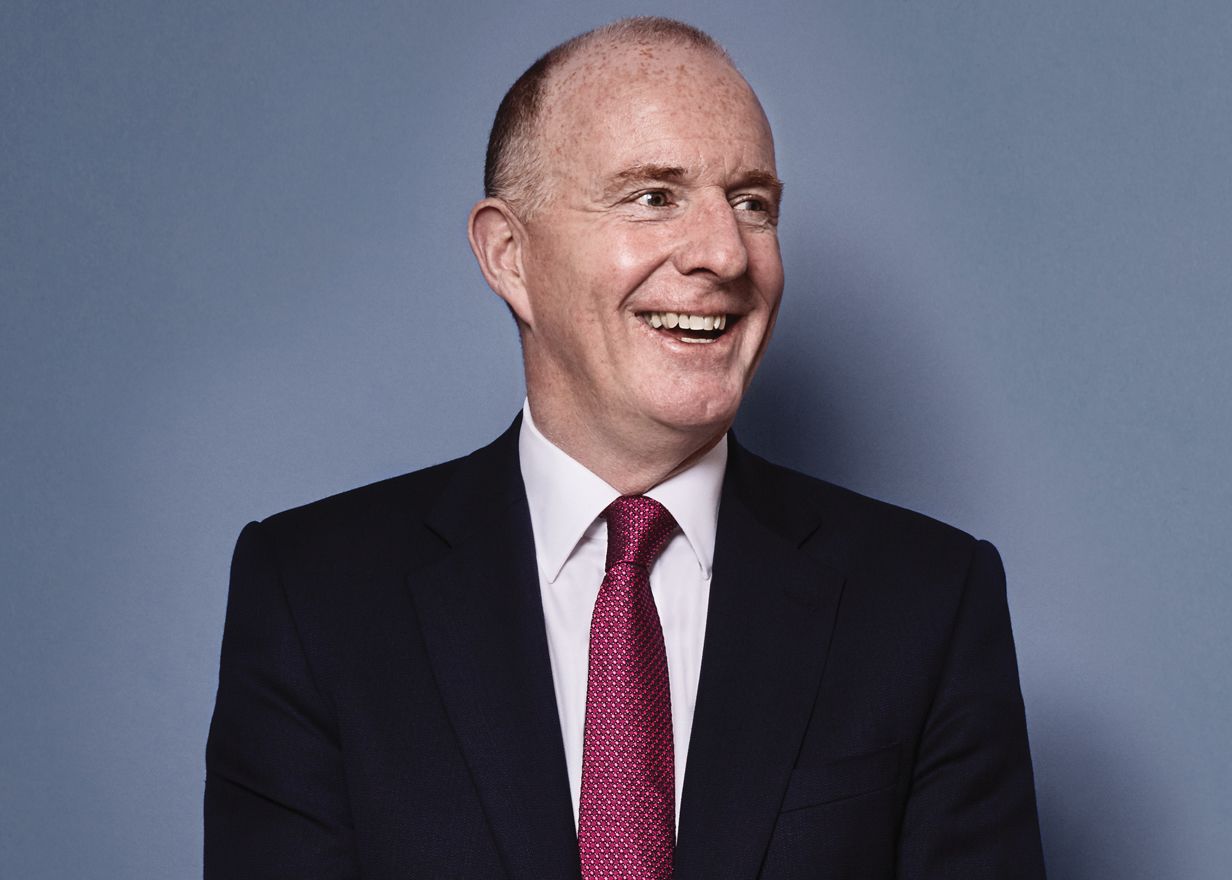
Nigel Oddy
Nigel Oddy

Ben Francis
Ben Francis
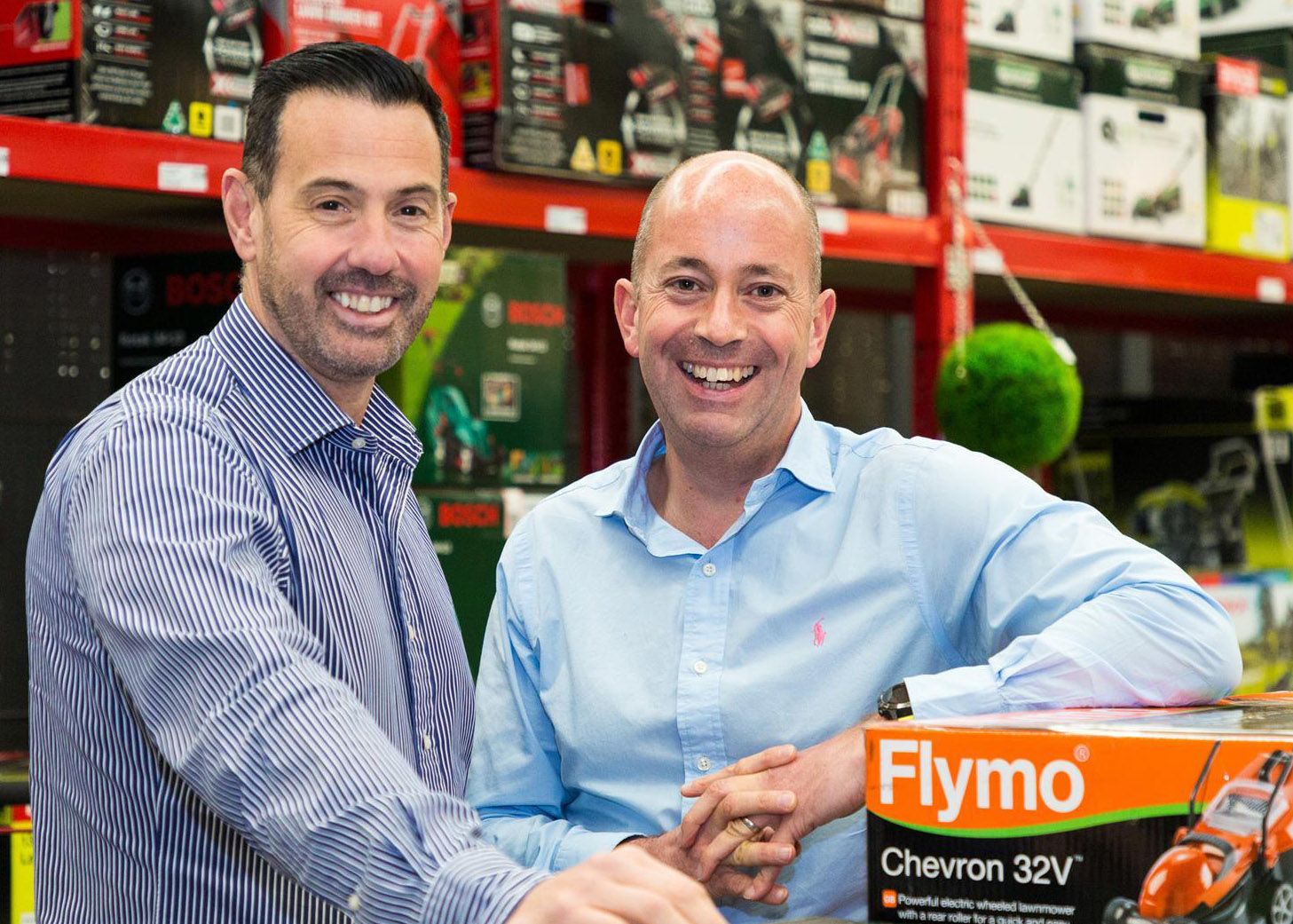
Damian McGloughlin (left)
Damian McGloughlin (left)

Graham Stapleton
Graham Stapleton
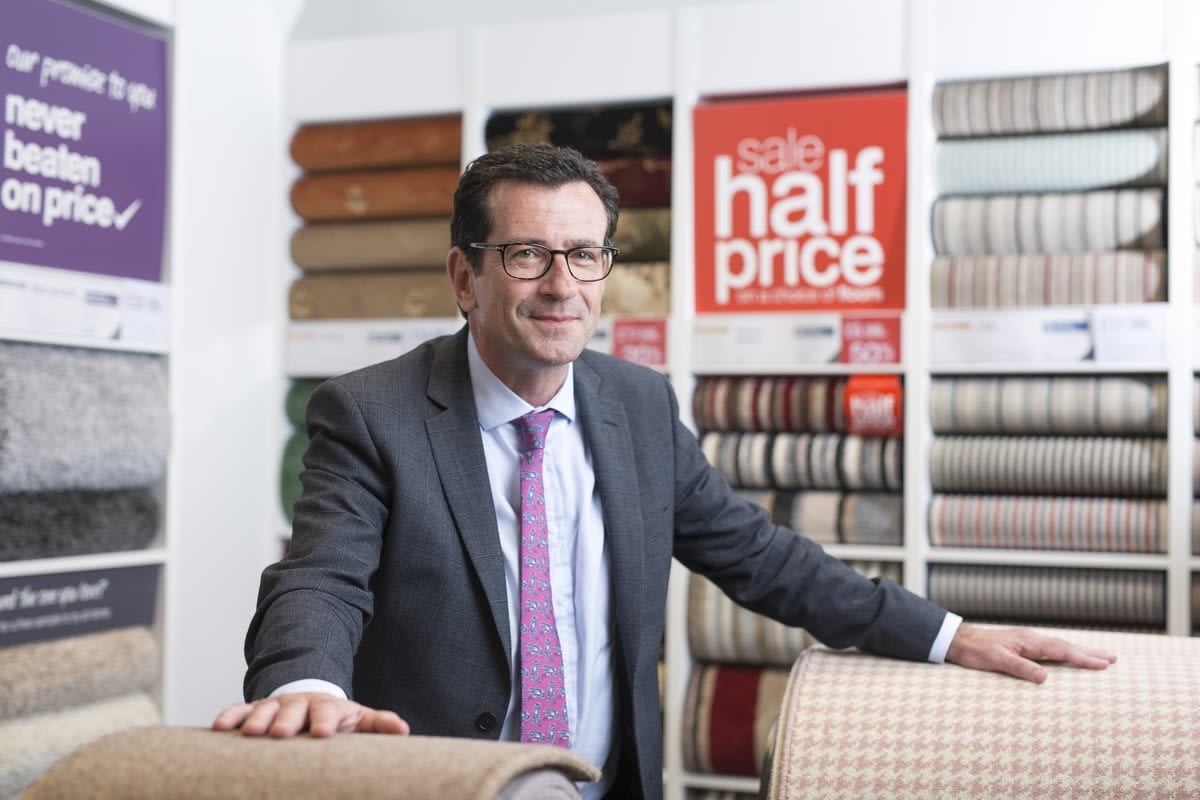
Wilf Walsh
Wilf Walsh
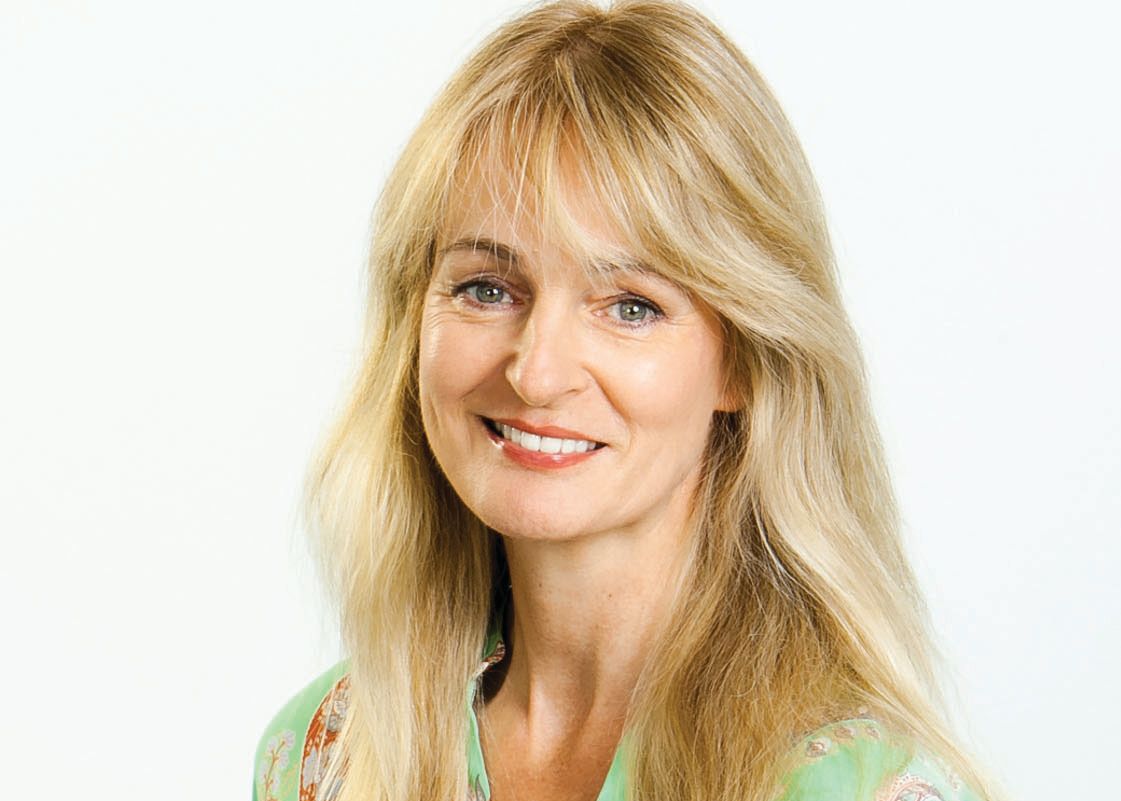
Louise Greenlees
Louise Greenlees

Claire Davenport
Claire Davenport

Rachel Osborne
Rachel Osborne
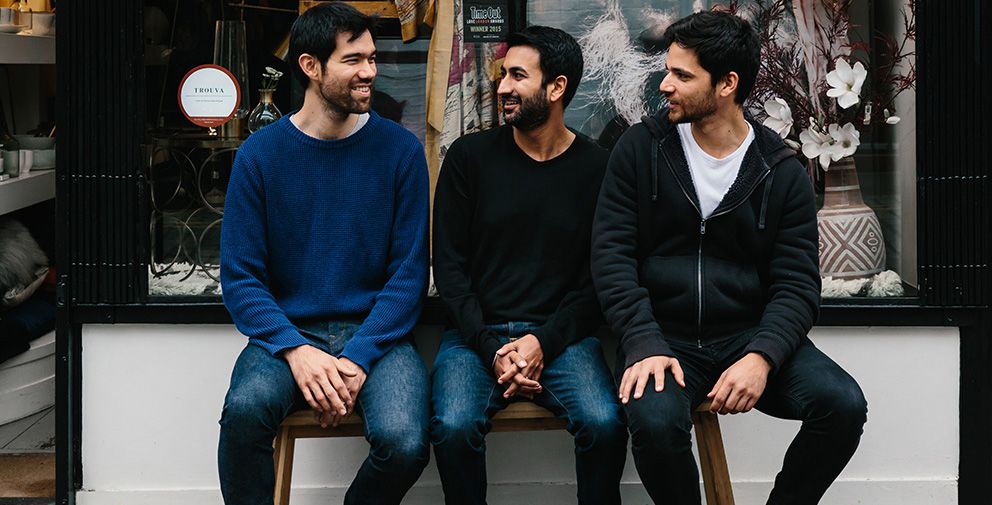
Alex Loizou, Mandeep Singh and Glen Walker
Alex Loizou, Mandeep Singh and Glen Walker

Will Kernan
Will Kernan
AT A GLANCE
RWRC Retail 100 2020 list in full – join the conversation on social media using the hashtag #Retail100
| Rank | Name | Job title and company | Last year | Movement |
|---|---|---|---|---|
| 1 | Dave Lewis | Chief executive, Tesco | 1 | = |
| 2 | Jeff Bezos | Founder and chief executive, Amazon | 2 | = |
| 3 | Rishi Sunak | Chancellor of the exchequer | NEW ENTRY | - |
| 4 | David Potts | Chief executive, Morrisons | 10 | ▲ 6 |
| 5 | Lord Simon Wolfson | Chief executive, Next | 5 | = |
| 6 | Steve Murrells | Chief executive, The Co-operative Group | 18 | ▲ 12 |
| 7 | Simon Roberts | Chief executive, Sainsbury’s | NEW ENTRY | - |
| 8 | Peter Cowgill | Executive chair, JD Sports | 7 | ▼ 1 |
| 9 | Mahmud Kamani and Carol Kane | Founders, Boohoo | 27 | ▲ 18 |
| 10 | Nick Beighton | Chief executive, Asos | 9 | ▼ 1 |
| 11 | Paul Marchant | Chief executive, Primark | 4 | ▼ 7 |
| 12 | Archie Norman | Chair, Marks & Spencer | 11 | ▼ 1 |
| 13 | Doug Gurr | UK country manager, Amazon | 13 | = |
| 14 | Steve Rowe | Chief executive, Marks & Spencer | 14 | = |
| 15 | Giles Hurley | UK and Ireland chief executive, Aldi | 15 | = |
| 16 | Tim Steiner | Chief executive, Ocado Group | 6 | ▼ 10 |
| 17 | Dame Sharon White | Chair, John Lewis Partnership | NEW ENTRY | - |
| 18 | Mike Ashley | Chief executive, Frasers Group | 3 | ▼ 15 |
| 19 | Alex Baldock | Chief executive, Dixons Carphone | 16 | ▼ 3 |
| 20 | Richard Walker | Managing director, Iceland | 23 | ▲3 |
| 21 | Christian Hartnagel | UK chief executive, Lidl | 20 | ▼ 1 |
| 22 | Seb James | Chief executive, Boots | 26 | ▲ 4 |
| 23 | Luke Jensen | Chief executives, Ocado Solutions | 24 | ▲ 1 |
| 24 | Jason Tarry | UK and Ireland chief executive, Tesco | 33 | ▲ 9 |
| 25 | Charles Wilson | Chief executive, Booker | 25 | = |
| 26 | Roger Burnley | Chief executive, Asda | 31 | ▲ 5 |
| 27 | Simon Arora | Chief executive, B&M | 22 | ▼ 5 |
| 28 | Helena Helmersson | Chief executive, H&M | NEW ENTRY | - |
| 29 | Thierry Garnier | Group chief executive, Kingfisher | NEW ENTRY | - |
| 30 | John Donahoe | Chief executive, Nike | NEW ENTRY | - |
| 31 | Peter Jelkeby | Country manager UK and Ireland, Ikea | NEW ENTRY | - |
| 32 | Theo Paphitis | Chief executive, Theo Paphitis Retail Group | 32 | = |
| 33 | Jo Whitfield | Chief executive, Co-op Food | 37 | ▲ 4 |
| 34 | John Roberts | Founder and chief executive, AO.com | 34 | = |
| 35 | John Allan | Chair, Tesco | 35 | = |
| 36 | Trevor Strain | Chief operating officer, Morrisons | NEW ENTRY | - |
| 37 | Carlos Crespo | Chief executive, Inditex | NEW ENTRY | - |
| 38 | Roger Whiteside OBE | Chief executive, Greggs | 64 | ▲ 26 |
| 39 | Carl Cowling | Chief executive, WHSmith | NEW ENTRY | - |
| 40 | Will Shu | Founder, Deliveroo | 56 | ▲ 16 |
| 41 | Kevin O’Byrne | Chief financial officer, Sainsbury’s | NEW ENTRY | - |
| 42 | Michael Ward | Managing director, Harrods | 42 | = |
| 43 | John Lyttle | Chief executive, Boohoo | 62 | ▲ 19 |
| 44 | Andy Bond | Chief executive, PepCo | 36 | ▼ 8 |
| 45 | Clare Clough | UK managing director, Pret a Manger | NEW ENTRY | - |
| 46 | Nick Wilkinson | Chief executive, Dunelm | 79 | ▲33 |
| 47 | Peter Pritchard | Chief executive, Pets at Home | 83 | ▲ 36 |
| 48 | Alannah Weston | Chair, Selfridges Group | 47 | ▼ 1 |
| 49 | Judith McKenna | Chief executive, Walmart International | 41 | ▼ 8 |
| 50 | Rob Hattrell | UK vice-president, eBay | NEW ENTRY | - |
| 51 | Matt Moulding | Chief executive, The Hut Group | 50 | ▼ 1 |
| 52 | Stuart Machin | Managing director, M&S Food | 54 | ▲ 2 |
| 53 | Tracey Clements | Chief operating officer, Boots | NEW ENTRY | - |
| 54 | Anne Pitcher | Managing director, Selfridges Group and Selfridges UK | 52 | ▼ 2 |
| 55 | Julian Richer | Founder, Richer Sounds | 39 | ▼ 16 |
| 56 | Alessandra Bellini | Chief customer officer, Tesco | 70 | ▲ 14 |
| 57 | Peter Macnab | Chief executive, AS Watson Health and Beauty UK | 71 | ▲ 14 |
| 58 | Henry Birch | Chief executive, Shop Direct | 53 | ▼ 5 |
| 59 | Mark Constantine | Chief executive, Lush | 58 | ▼ 1 |
| 60 | Mike Logue | Chief executive, Dreams | 61 | ▲ 1 |
| 61 | Barry Williams | Managing director, Poundland | 60 | ▼ 1 |
| 62 | Julian Dunkerton | Founder and chief executive, Superdry | 65 | ▲ 3 |
| 63 | Lord Stuart Rose | Chair, Ocado and Fat Face | 49 | ▼ 14 |
| 64 | José Neves | Founder and chief executive, Farfetch | 40 | ▼24 |
| 65 | Jacqueline Gold CBE | Chief executive, Ann Summers | 46 | ▼19 |
| 66 | Philip Day | Owner and chief executive, Edinburgh Woollen Mill Group | 51 | ▼ 15 |
| 67 | Alistair McGeorge | Non-executive chair, New Look | 57 | ▼ 10 |
| 68 | Nitin Passi | Chief executive, Missguided | 66 | ▼2 |
| 69 | Gary Grant | Co-founder and executive chair, The Entertainer | 67 | ▼2 |
| 70 | Tom Morris | Founder, Home Bargains | 68 | ▼2 |
| 71 | Deirdre O’Brien | Senior vice-president of retail and people, Apple | 72 | ▲ 1 |
| 72 | Richard Pennycook | Chair, Retail Sector Council and 2 Sisters | 30 | ▼42 |
| 73 | Federico Marchetti | Chair, Yoox Net-a-Porter | 48 | ▼25 |
| 74 | Sir Philip Green | Owner, Arcadia Group | 59 | ▼ 15 |
| 75 | Karen Hubbard | Chief executive, Card Factory | 75 | = |
| 76 | Jason Hargreaves | Chief executive, Matalan | 63 | ▼ 13 |
| 77 | Emily Weiss | Founder and chief executive, Glossier | NEW ENTRY | - |
| 78 | Graham Bell | Chief executive, B&Q | 73 | ▼5 |
| 79 | Chris Dawson | Founder, The Range | 74 | ▼5 |
| 80 | Dominik Richter | Founder and chief executive, HelloFresh | 88 | ▲ 8 |
| 81 | Clodagh Moriarty | Retail and digital director, Sainsbury’s | NEW ENTRY | - |
| 82 | Angus Thirlwell | Chief executive, Hotel Chocolat | 80 | ▼2 |
| 83 | Ian Grabiner | Chief executive, Arcadia Group | 76 | ▼7 |
| 84 | James Daunt | Chief executive, Waterstones | 85 | ▲1 |
| 85 | John Mewett | Chief executive, Screwfix | 86 | ▲ 1 |
| 86 | Linda Campbell | UK managing director, The Body Shop | NEW ENTRY | - |
| 87 | Maria Raga | Chief executive, Depop | 87 | = |
| 88 | Charlotte Tilbury | Founder and chief executive, Charlotte Tilbury | 90 | ▲ 2 |
| 89 | Katie Bickerstaffe | Chief strategy and transformation officer, Marks & Spencer | NEW ENTRY | - |
| 90 | Helen Dickinson | Chief executive, British Retail Consortium | 91 | ▲ 1 |
| 91 | Nigel Oddy | Chief executive, New Look | NEW ENTRY | - |
| 92 | Ben Francis | Founder, Gymshark | 92 | = |
| 93 | Damian McGloughlin | Chief executive, Homebase | NEW ENTRY | - |
| 94 | Graham Stapleton | Chief executive, Halfords | 93 | ▼1 |
| 95 | Will Walsh | Chief executive, Carpetright | 94 | ▼1 |
| 96 | Louise Greenlees | President, TJX Europe | 96 | = |
| 97 | Claire Davenport | Chief executive, Notonthehighstreet.com | NEW ENTRY | - |
| 98 | Rachel Osborne | Chief executive, Ted Baker | NEW ENTRY | - |
| 99 | Alex Loizou, Mandeep Singh and Glen Walker | Founders, Trouva | 100 | ▲ 1 |
| 100 | Will Kernan | Chief executive, River Island | NEW ENTRY | - |
Highest risers in the Retail 100 2020
| Name | Job title and company | Rise | This year | Last year |
|---|---|---|---|---|
| Peter Pritchard | Chief executive, Pets at Home | +36 | 47 | 83 |
| Nick Wilkinson | Chief executive, Dunelm | +33 | 46 | 79 |
| Roger Whiteside OBE | Chief executive, Greggs | +26 | 38 | 64 |
| John Lyttle | Chief executive, Boohoo | +19 | 43 | 62 |
| Muhmud Kamani and Carol Kane | Founders, Boohoo | +18 | 9 | 27 |
| Will Shu | Founder, Deliveroo | +16 | 40 | 56 |
| Alessandra Bellini | Chief customer officer, Tesco | +14 | 56 | 70 |
| Peter Macnab | Chief executive, AS Watson UK | +14 | 57 | 71 |
| Steve Murrells | Chief executive, The Co-operative Group | +12 | 6 | 18 |
| Jason Tarry | UK and Ireland chief executive, Tesco | +9 | 24 | 33 |
Biggest fallers in the Retail 100 2020
| Name | Job title and company | Fall | This year | Last year |
|---|---|---|---|---|
| Richard Pennycook | Chair, Retail Sector Council and 2 Sisters | -42 | 72 | 30 |
| Federico Marchetti | Chair, Yoox Net-a-Porter | -25 | 73 | 48 |
| José Neves | Chief executive, Farfetch | -24 | 64 | 40 |
| Jacqueline Gold CBE | Chief executive, Ann Summers | -19 | 65 | 46 |
| Julian Richer | Founder, Richer Sounds | -16 | 55 | 39 |
| Sir Philip Green | Owner, Arcadia Group | -15 | 74 | 59 |
| Philip Day | Owner and chief executive, Edinburgh Woollen Mill Group | -15 | 66 | 51 |
| Mike Ashley | Chief executive, Sports Direct | -15 | 18 | 3 |
| Lord Stuart Rose | Chair, Ocado and Fat Face | -14 | 63 | 49 |
| Jason Hargreaves | Chief executive, Matalan | -13 | 76 | 63 |
Ones to watch
| Name | Job title and company |
|---|---|
| Nina Bhatia | Executive director, strategy and commercial development, John Lewis Partnership |
| David Hobbs | Transformation officer, Boots |
| Jane Shepherdson | Chair, MyWardrobe HQ |
| Richard Price | Managing director of clothing and home, Marks & Spencer |
| Ken Murphy | Incoming chief executive, Tesco |
| Melanie Smith | Chief executive, Ocado Retail |
| James Bailey | Executive director, Waitrose |
| Ajay Kavan | Chief executive, Matchesfashion |
QUALIFYING CRITERIA
Ranking the sector’s 100 most influential individuals, the Retail 100 celebrates leaders who are transforming retail, speaking out, innovating, making headlines and driving growth.
The role of traditional leaders – once hailed for their power, status and dominance – is no longer as important as it was. Today’s workforces demand leaders who inspire, who change the status quo, and who put people and purpose at the heart of their businesses.
In light of the new reality facing retail, this year’s list has placed emphasis on those leaders stepping up to support their colleagues and customers during the Covid-19 pandemic.
The list is decided by Retail Week’s team of expert journalists using the following criteria to assess who qualifies and where they should rank:
Making headlines in 2020: Based on the extent to which the individual and/or the retailer they represent has been making headlines and gaining column inches for positive reasons.
A spokesperson for the retail industry: Based on how much of a spokesperson the individual is.
Innovator: Based on whether the individual has brought about innovation in the business and/or been a force for change in the retail sector – particularly in their reaction to the pandemic.
Financial performance: Based on group sales and group pre-tax profits of the retailer the individual represents (taking into account the impact of coronavirus).
UK scale: Based on the volume of the retailer’s UK sales in comparison to group sales.
‣ Retail Week reserves the right to change the qualification criteria set out above and to make exceptions. The Retail 100 2020 is not a competition; Retail Week’s decision is final and no correspondence will be entered into.
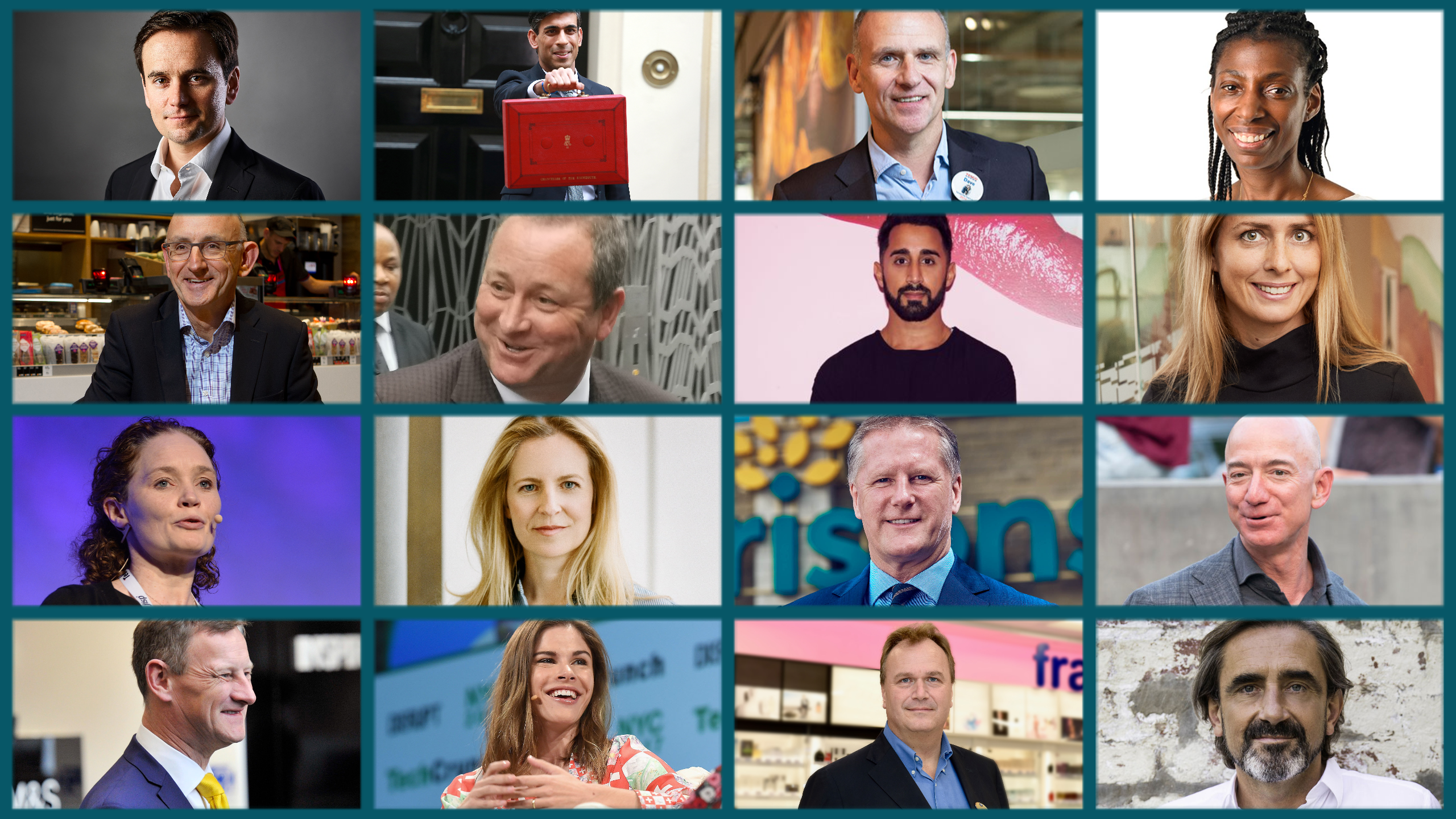
Partner messages
Retail 100 partners Braze, ChannelAdvisor and Salesforce comment on what the list says about the evolving retail ecosystem
James Manderson
GM, EMEA and VP customer success, EMEA and APAC at Braze

The global COVID-19 pandemic has propelled transformation across all industries. When it comes to retail, the challenge has been adapting to the unprecedented shift in consumer behaviour and effectively communicating with them during the uncertainty.
The Retail 100 celebrates leaders who truly understand consumer needs in a crisis and beyond. Their secret? Putting customers and purpose before profits.
This mantra is especially important in communications. It’s no longer good enough for retailers to share ‘spray and pray’ emails to stale customer segments with no regards for the individual’s context, preference or recent interactions with the brand.
To realise success, retailers must connect with consumers in the moments that matter and on the right channels
We unfortunately saw this a lot at the start of the pandemic with blanket ‘we’re here for you’ emails. We can do better.
To realise success, retailers must connect with consumers in the moments that matter and on the right channels. Agile customer engagement allows them to do this and, combined with customer-first teams, brands themselves can be human – sharing creative and personalised messages.
Only then will retailers drive true loyalty, which is especially important during these times.
One thing shared by many of the leaders in this year’s Retail 100 list is that they are putting customers first. Congratulations to them for this great achievement.
Jon Maury
Managing director at ChannelAdvisor

To say the retail industry has experienced challenging times is an understatement.
Over the past few months we’ve faced unprecedented changes in both ecommerce and the retail industry. Businesses have needed to adapt at warp speed while navigating seismic shifts in supply and demand and as well as continuing to provide the customer service standard their customers expect.
We often talk about transformation in the retail sector, yet for many businesses the past couple of months have contributed more to digital transformation than the past few years combined.
Consumers are spending more time online than ever before; our research shows that 48% of consumers are shopping online more than they did pre-pandemic. Retail leaders need to make sure their businesses are front of mind, regardless of what channel consumers engage on.
Consumer opinions formed during this unprecedented time will shape shopping behaviour for years to come
Reputation over the coming months will be defined by communication with both customers and potential customers. As the uncertainty continues, with no end yet in sight, the focus should be on sensitivity, empathy, consistency and transparency across all channels to maintain trust. Consumer opinions formed during this unprecedented time will shape shopping behaviour for years to come.
As the impact of the pandemic continues to unfold, it’s the businesses that embody a digital-first mindset that will weather the storm. The retail industry is transforming and now is the time to act.
This year’s Retail 100 have led their organisations through a period like no other – demonstrating vision, agility and resilience as well as empathy and understanding.
Michael Green
Senior area vice-president and head of retail & TTH (travel, transport, hospitality) at Salesforce

It’s incredible to see such a talented group of individuals get the recognition they deserve, in what has been one of the most challenging times in the retail industry ever.
The industry has shown real grit and I’m inspired to know that its these influential people who will be taking us into the next decade of retail with all the new technologies, services and products it will bring.
Retailers are no longer thinking of the values they share with consumers as an afterthought, but instead putting them front and centre
What came through most is how much retailers are no longer thinking of the values they share with consumers as an afterthought, but instead putting them front and centre – something I couldn’t be happier about.
Whether that’s sustainability, equality or generally making the world a better place to live, these values are especially important to consumers now more than ever.
This year’s Retail 100 is about celebrating the leaders who have kept people and purpose as their number one priority, innovating as they go to ensure the best possible service, products and experiences for their customers.
Congratulations to all.
Retail 100 2020
Written by the Retail Week team, compiled by Megan Dunsby and produced by Stephen Eddie and Rachel Horner.
Published In association with Braze, ChannelAdvisor and Salesforce.
All profile information correct as of May 22, 2020.
Retail 100 2020 is independent editorial content produced by Retail Week. It has not been shown to the sponsors prior to publication for approval.



